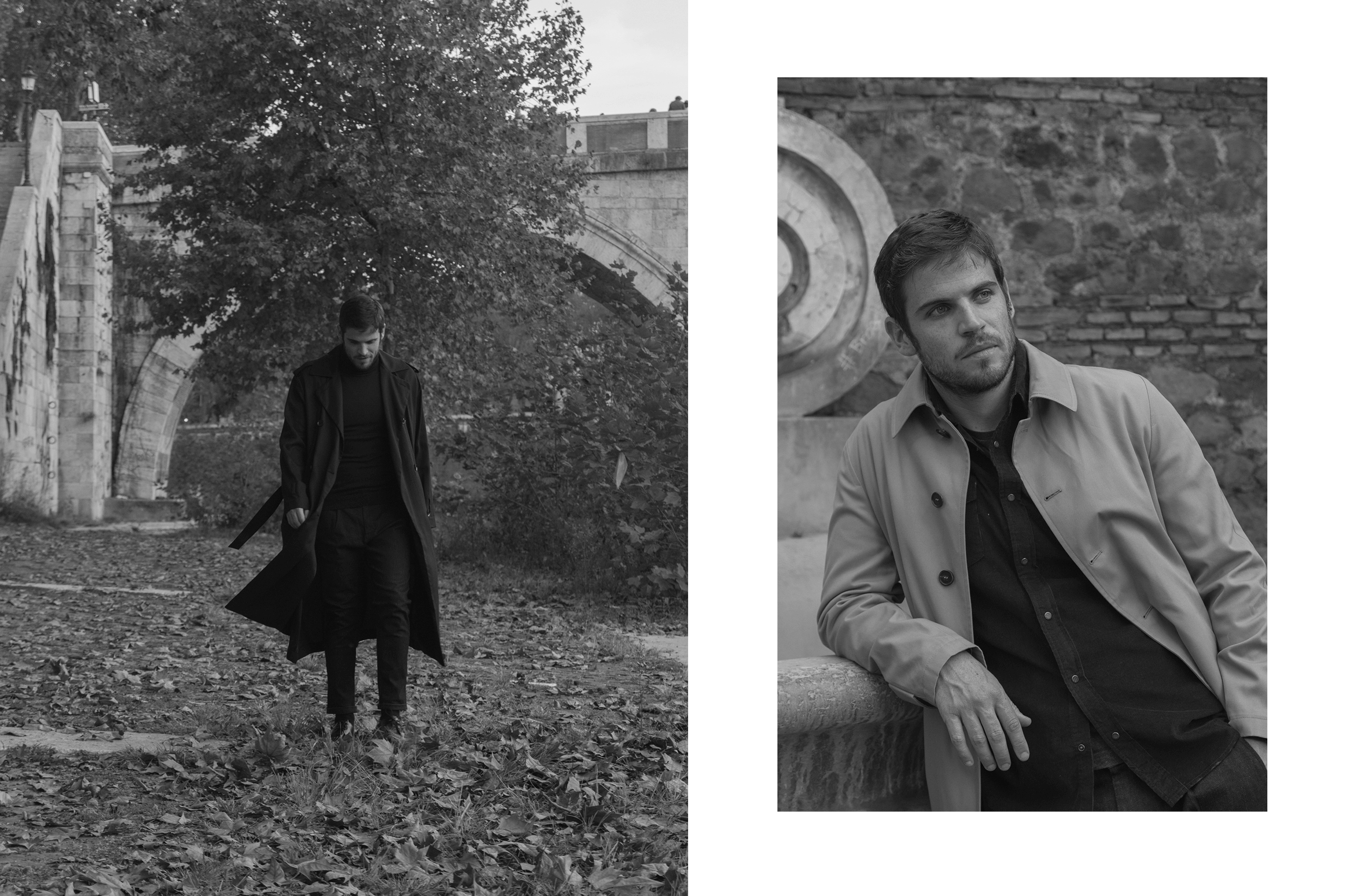What better month than the lover’s month to release a TV series that fuels on lovers, analyzing them and outlining their contours, one episode at a time? On February 14th, the Netflix catalog added a new high-quality product, the much-anticipated adaptation of the novel of the same name by Marco Missiroli, “Devotion.” A limited series of 6 episodes all set in Milan, Italy, dealing with the themes of devotion, betrayal, doubt, and the evolution of feelings in romantic relationships.
In the easy and healthy everyday life of Carlo (Michele Riondino) and Margherita (Lucrezia Guidoni), Temptation sneaks in, along with the questioning of the exclusive nature of their reciprocal love. Leonardo Pazzagli is the straw that breaks the camel’s back: in “Devotion,” he plays the young physiotherapist Andrea, a character with an aura of mystery and charm on his side, who finds with Margherita a dangerous connection.
Leonardo told us about his experience on set, the nuances that the concept of devotion can have in our lives, and the meaning it has in his own. Between historic passions and backgrounds, future projects, and almost infinite faith in challenging questions that help us know ourselves, on the road towards the conquest of authenticity.
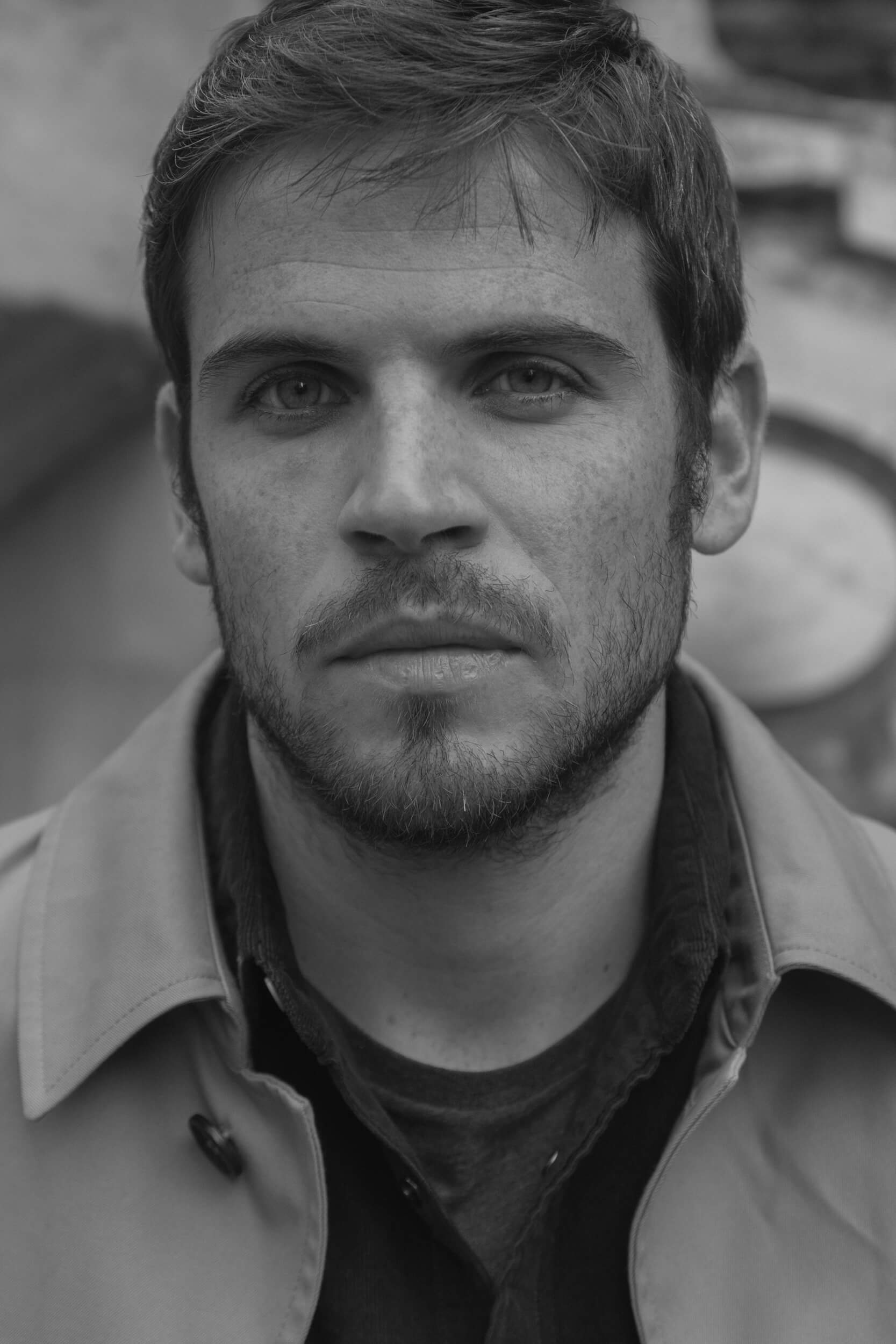
What’s your first cinema memory?
A hard question to which I would answer as many other people would: the epiphany of my first movie in the theater. What comes to my mind is “Cinema Paradiso,” and not because it was the first movie I’d ever seen, but because it was my first meta cinematic one, so if you ask me about the first cinema-related memory, it’s that one. Maybe, speaking of movies as such, the first one I remember is “Bambi.” I don’t remember this, but my mom told me about my desperate crying every time I saw it [laughs].
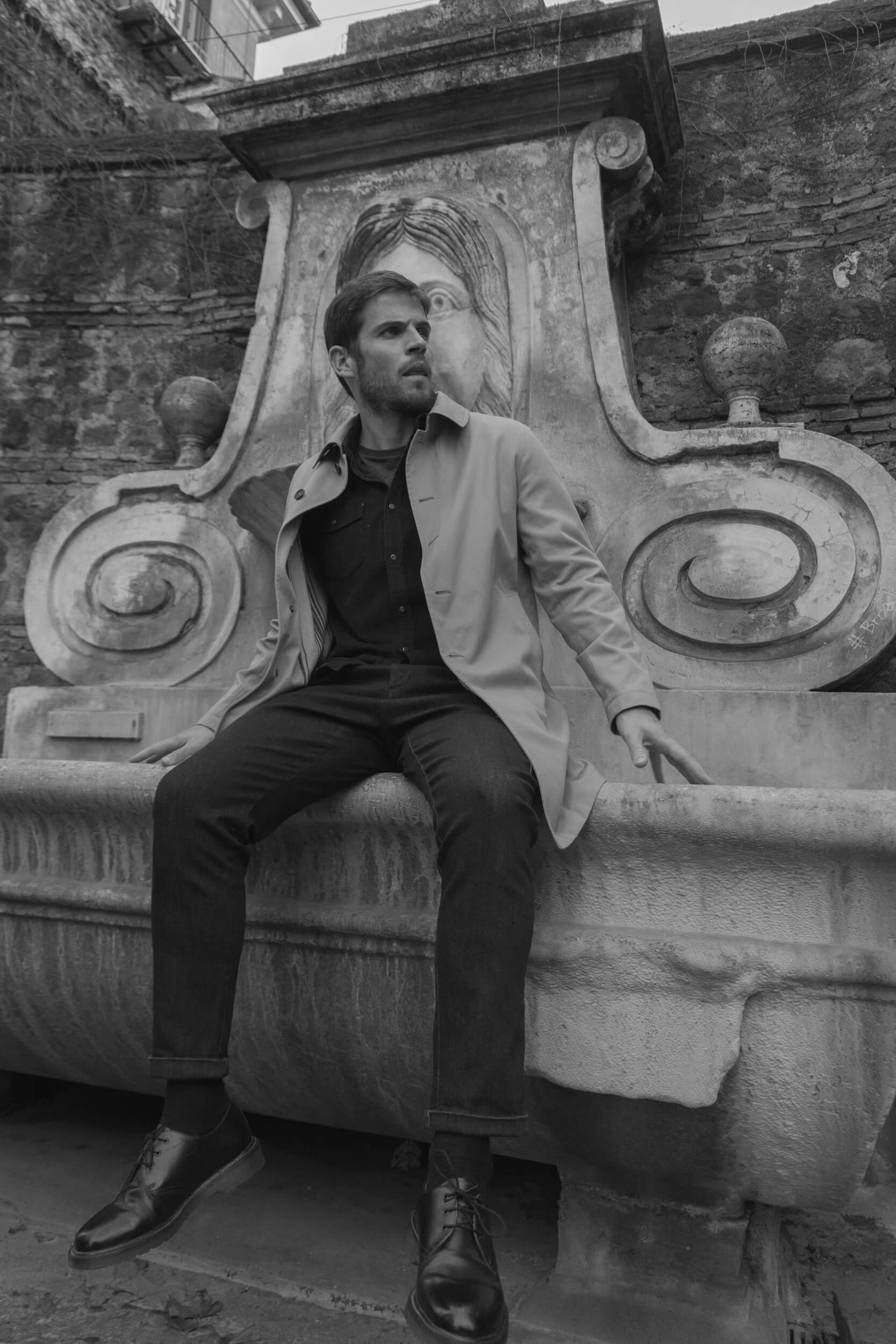
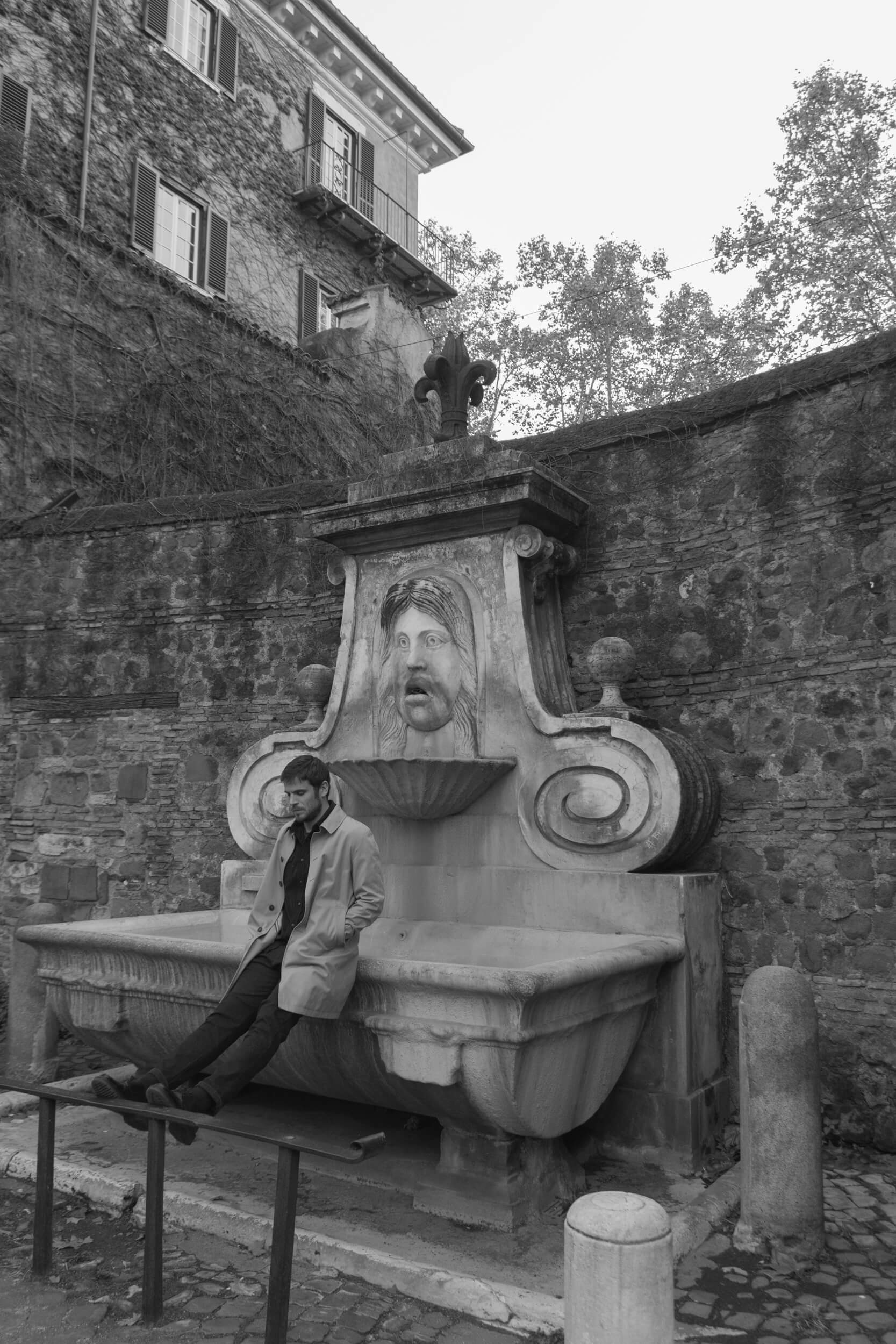
You’re one of the protagonists of the new Netflix limited series “Devotion,” available from February 14th. What was your first reaction when you read the script and processed the role you were going to play? And what was the first question you asked the directors and yourself?
As soon as they told me that I got the part, I felt euphoric, I was genuinely happy, and this euphoria stayed with me even after I read the scripts. My character in the book and in the series are the same person but told in a different way, and basically, the directors gave me a lot of freedom to perform it. Of course, I asked them for precise directions according to what they wanted me to do, and they gave me some hints, although still giving me a certain freedom.
The question I always ask myself is: what is there of myself in my character and what isn’t there in him that I have to conquer and maybe keep with me, even after getting myself back and taking off the character’s shoes? The feature of this character that immediately struck me is that he is an observer, he’s a good listener, and he’s very essential: he’s not verbose at all, he’s straightforward and essential. I’m an observer and a good listener, as well; maybe I’m less essential than him, so the first question I asked myself was: “Okay, I need to conquer a greater essentiality; what do I have and what do I lack, and what do I lack that I want to keep within me?”.
For every actor, it’s different, of course, but for me, the opportunity to play a character is always a way to get to know myself better and to better know those parts of me that maybe I haven’t explored yet and that I can bring out because I think that every single one of us is made of a variety of colors that my job allows one to know better, explore, and acquire.
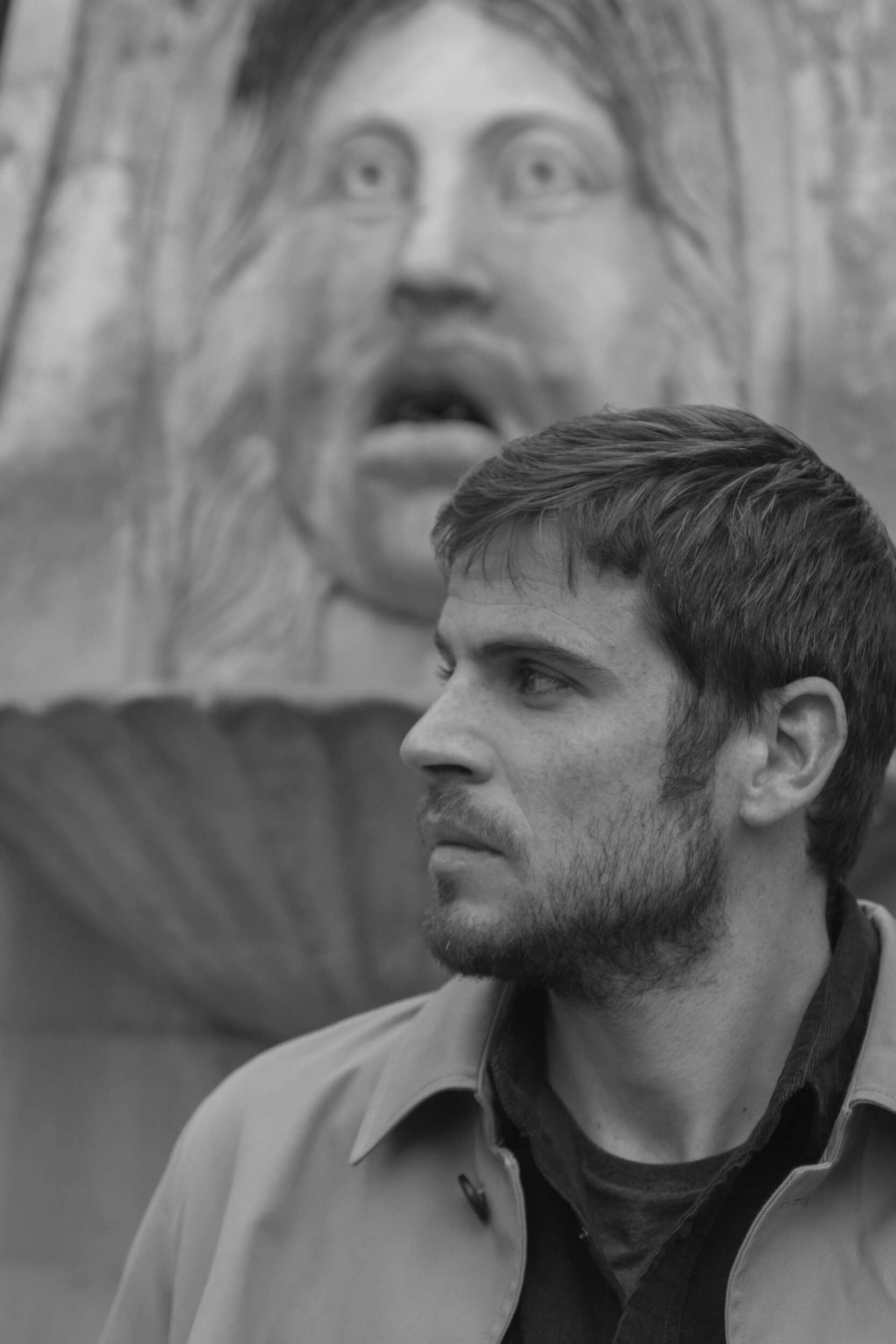
“…what is there of myself in my character and what isn’t there in him that I have to conquer and maybe keep with me…”
You’ve mentioned the novel by Marco Missiroli on which the series is based: did you know it, had you already read it even before taking an interest in the adaptation process?
I knew it because a friend of mine had told me about it, but I read it after my first audition, as he had mentioned the book to me a few weeks before and, as luck would have it, this audition came about and I started reading the book just a few days before. So, in other words, I approached the book when I had the first hints of this project, but when, later, I got the part, I had already read it and worked on it.
Your character, Andrea, is a physiotherapist who seduces the protagonist (Lucrezia Guidone), making her question the certainties she had about her undisputed desire of her husband (Michele Riondino) and no one else. What were the difficulties and challenges of playing your character and how did you face and overcome them?
The first challenge was the huge physical training that I had to go through for this role. I spent two extremely intense months in which Bibi Film, our production company, gave me so much support flanking me with some top professionals, one for all, a world champion in his discipline, whom I’d really love to thank publicly.
Like never before, I’ve really been rigorous during my physical training, for what concerns both my meals and workout sessions, it’s been two months exclusively dedicated to that, also because it was right after Christmas, so when I knew I got the part, I still had the tenth slice of panettone in my belly [laughs], I had to set up the game. That was a very intense phase, and when you do “extreme” things, such an engaging physical preparation, also your psyche gets somehow affected, and for me, it was the first time. Both the rigor of the workout and the rigor of the diet gave me a new perspective to look at things; so, this was the first challenge. Then, the fact that not much is known about my character, not much is shown on: the challenge was trying to work on the unseen, so his origins, context, family, which are things that stay hidden behind the storyline but make the character alive. And then, reclaim that essentiality I was talking about, that visceral instinct that prevents you from doing something unless it’s a necessity.
Going back to what you were saying about Andrea being the one who makes the protagonist question some of her certainties, I think that the character already has a clear idea of what he wants, but he also has a deep understanding of her and feels that it’s something that she wants too, so he offers himself to second a desire of hers, but he doesn’t offer himself to her, even when he understands that she feels attracted to him – mine is a character who doesn’t think but feels.
These, in various ways, are the main challenges I had to deal with to play this character – compared to the book, his story is really condensed in the show.
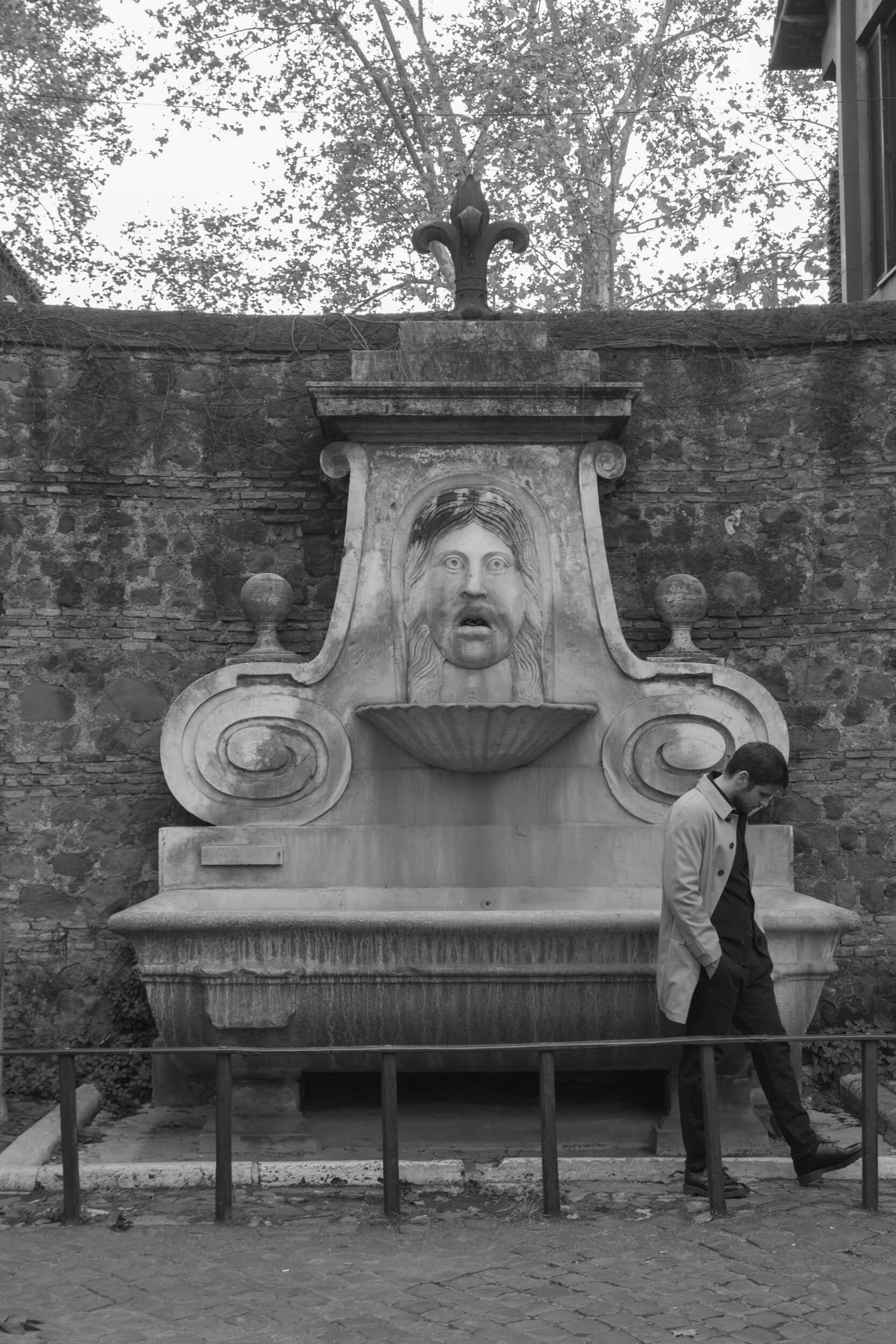
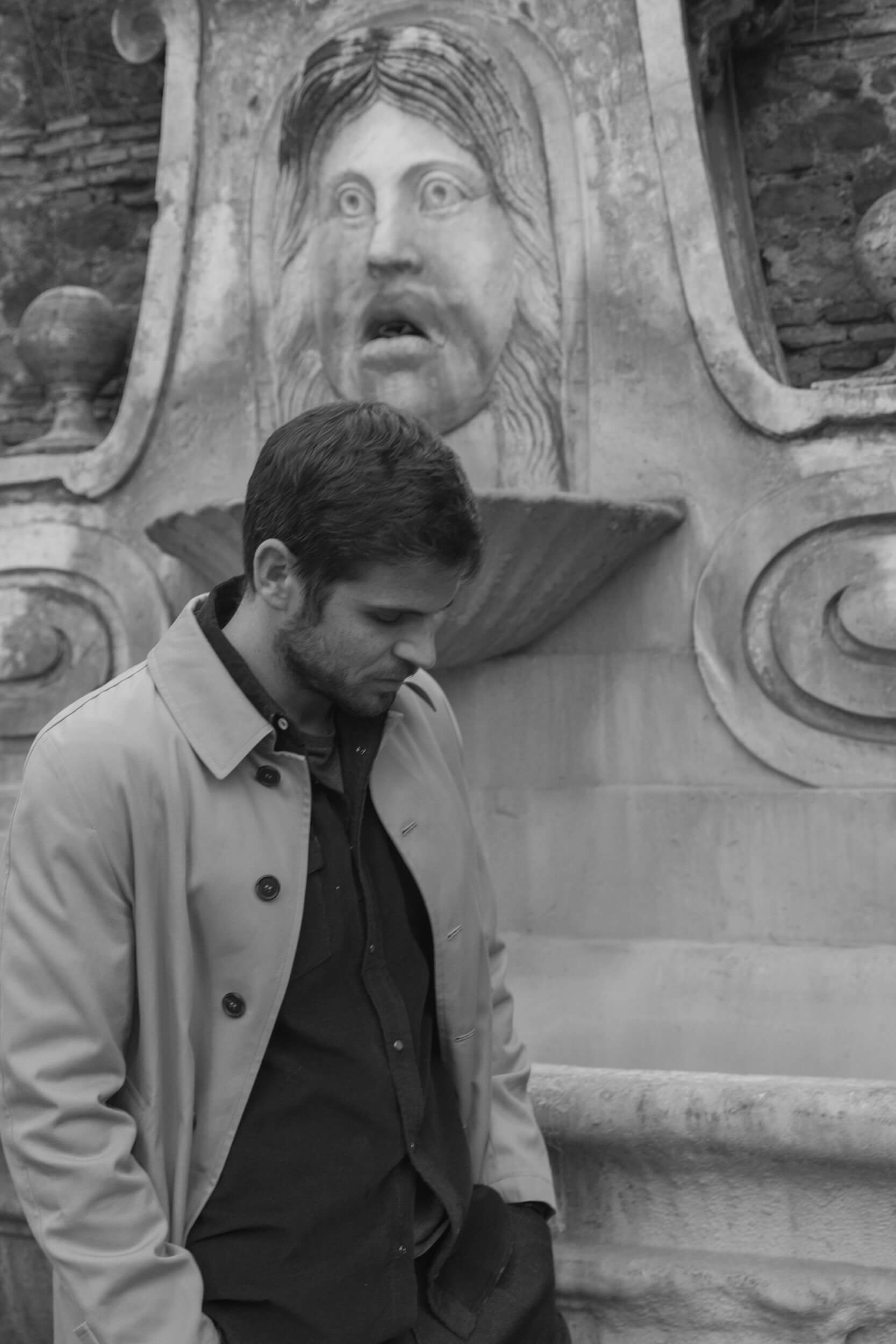
The series represents the many sides of love, but, first and foremost, it explores the idea of desire and the reality of betrayal which often creep into romantic relationships. How did you approach such delicate topics? Who or what inspired you, every day on set, and at home, during your prep process?
As the author himself, Missiroli, stated in a few interviews, the book supports the theory that there’s not only one kind of devotion but there are many. The first devotion we need to take into account is the one we owe to ourselves, to what we want, what we feel, and what we wish – this is something that really resonated with me. I immediately felt very close to this topic: I agree with the idea that in a relationship there’s a kind of devotion that is basically a sexual devotion because we constantly cheat in our minds. However, I think that the first kind of devotion we should actualize is the one we owe to ourselves, and I totally agree with this message within the story, which is also a concept that expands to many other fields, for example, the choice between joining a group or not. Back when I was in high school, I had a habit of writing things on the walls in my bedroom, and there I found a quote by Fernando Savater, a philosopher I was passioned about in high school, which was something like, “It’s more important to betray the others while staying faithful to yourself,” speaking of joining groups.
So, even when we approach a sexual/sentimental topic, the importance of the devotion to yourself above anyone else stays a valid idea and can embrace many other fields. It’s not about selfishness, on the contrary, because if you are faithful to yourself, you establish a foundation, a solid basis for us to be authentically generous and faithful to the others: if you’re not faithful to yourself, it’s like creating a building with no foundation. This aspect of the novel and the series has given me so many interesting insights, conceptually speaking.
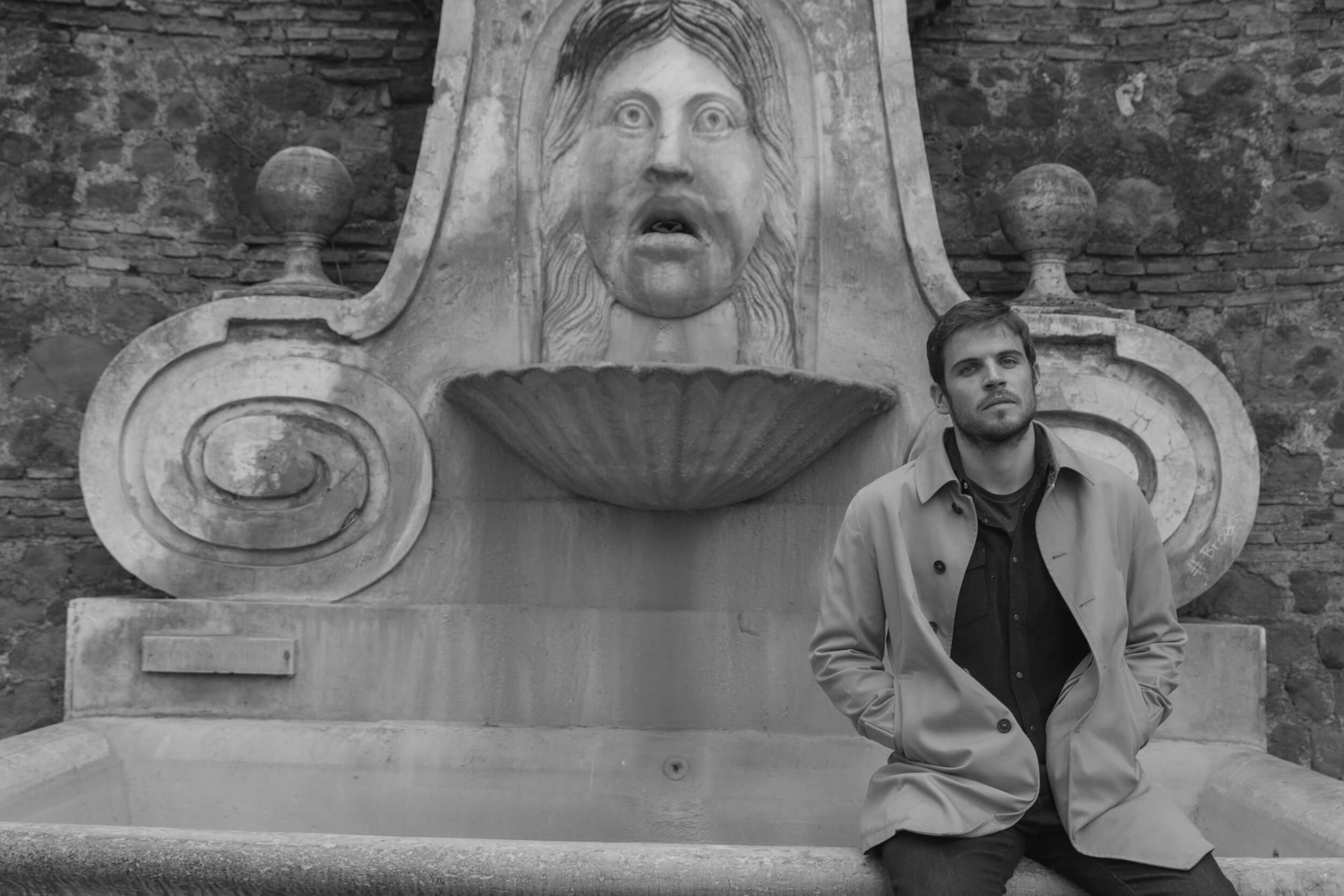
“The first devotion we need to take into account is the one we owe to ourselves…”
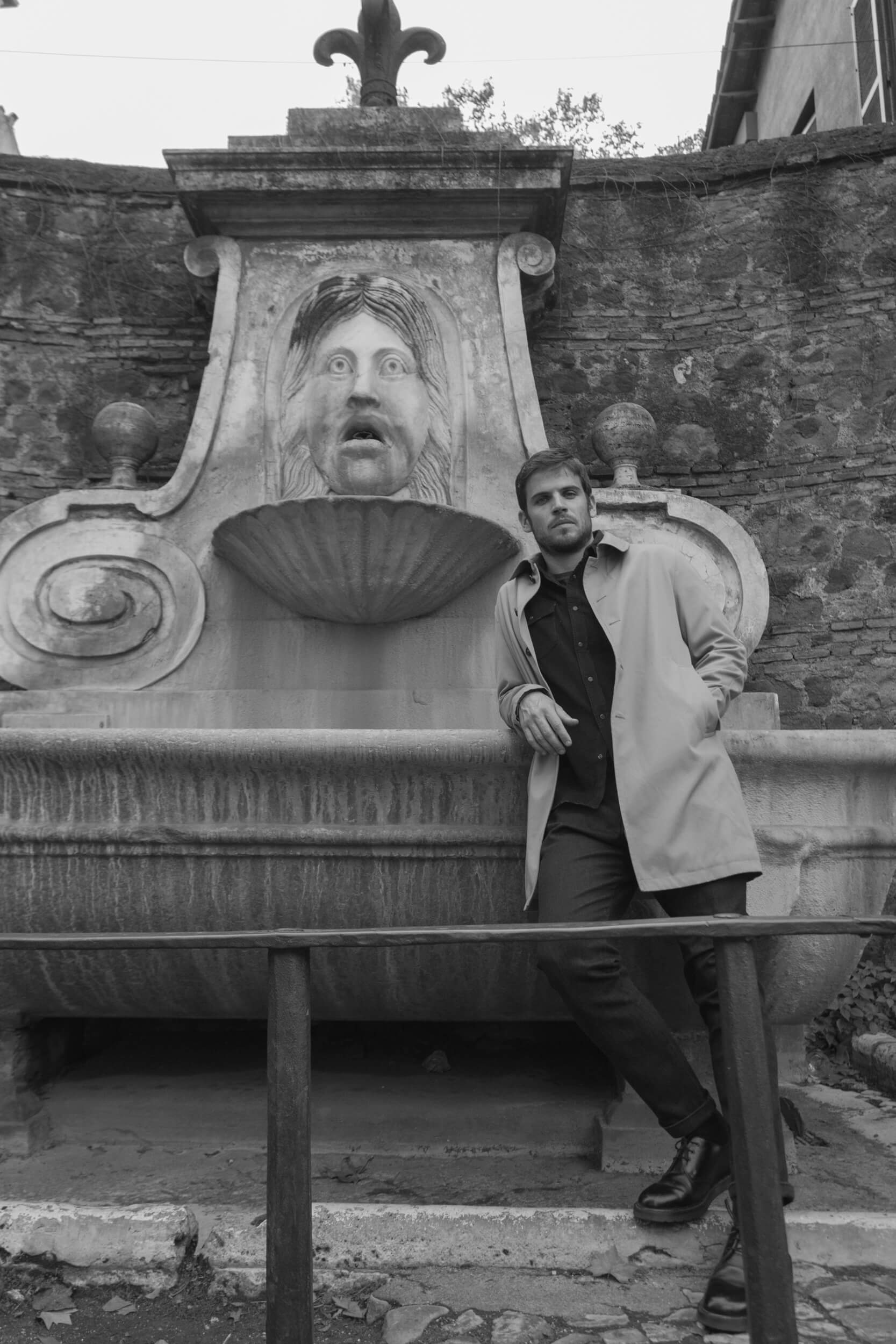
What did you bring home from this series?
This concept of the primary importance of the devotion to the self was the one that resonated with me the most and the fact that it’s often mistaken for selfishness, but that’s wrong because we are the most important things we have, each one for ourselves. I’ve learned that if you manage to really know yourself, love yourself, appreciate yourself, and understand what you really want, then you lay the foundations for you to “expatriate” to the outside, to really love someone, to really be generous, to really desire someone.
So, this idea of devotion to the self is the fundamental basis of any chance to really be authentic on the outside, otherwise, you’d act out of guilt or for duty, forgetting about yourself, and our actions become petty and soiled with a lack of the most authentic selves in what we do.
How would you describe “Devotion” in one word?
This is a very dangerous question… One word that’s not too obvious… This is a situation in which I’d like to be more essential like Andrea, he would have the right answer. I’ll say “passional.”
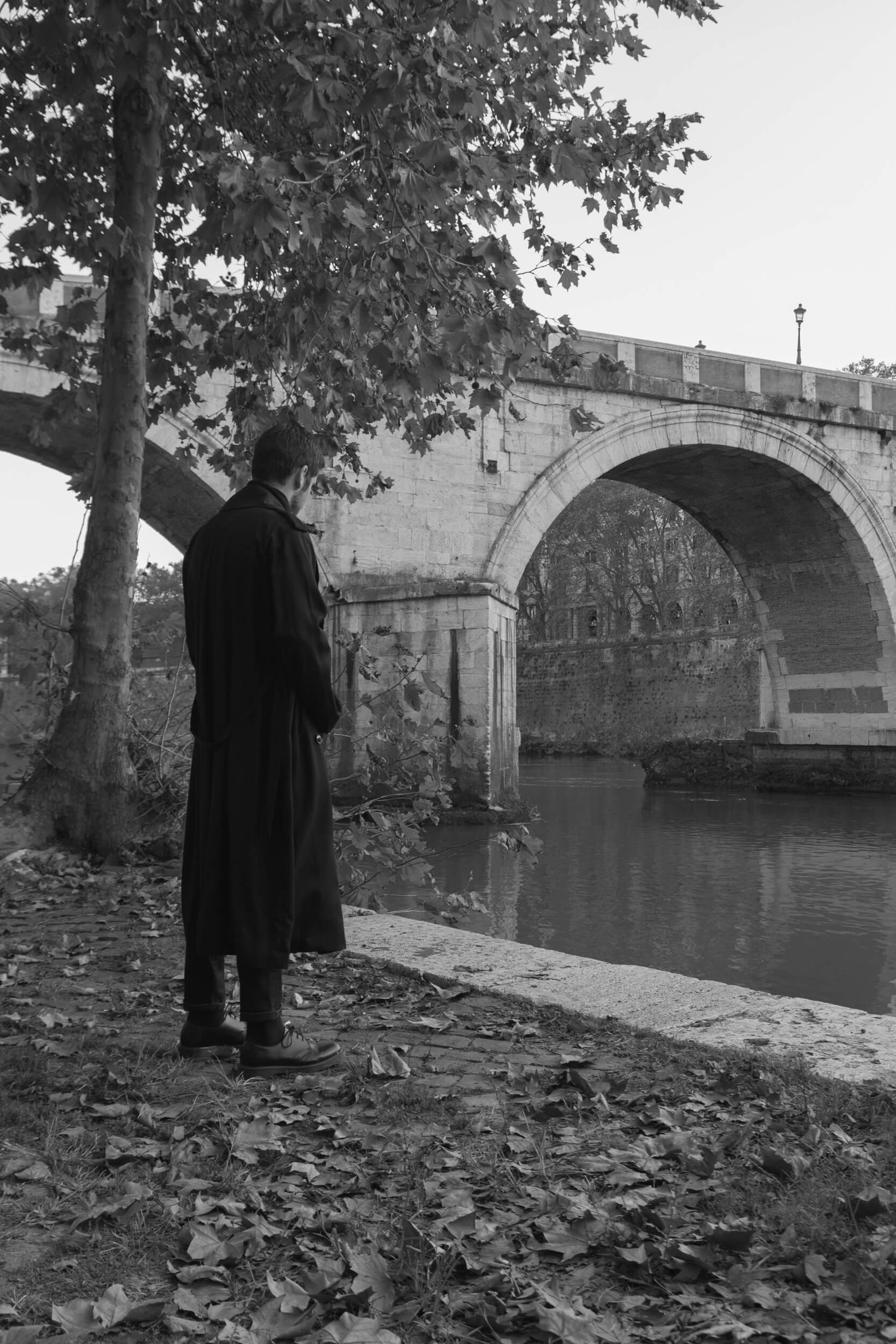
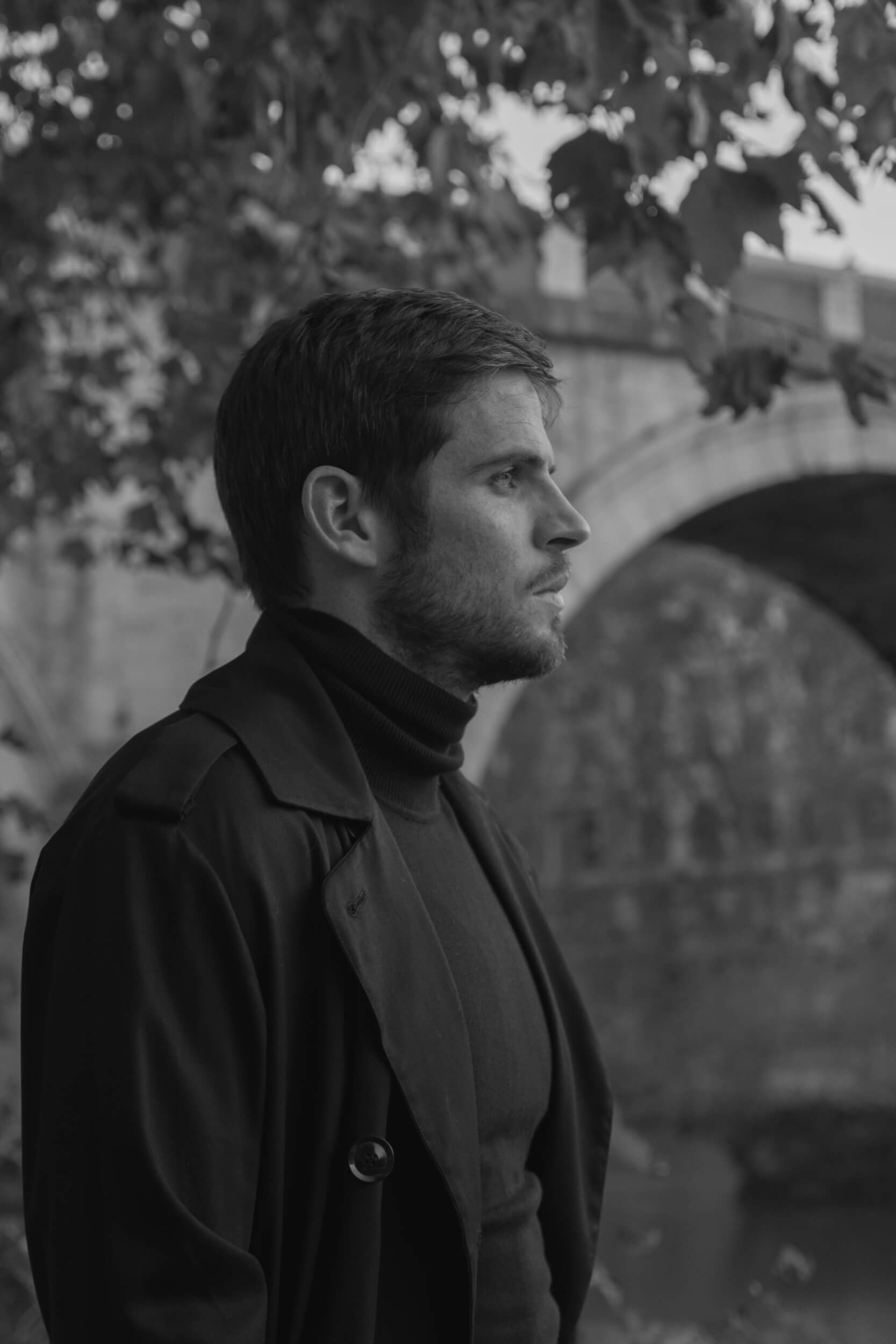
We’ll soon see you again on the screen in the TV series “Più forti del destino,” adapted from the French series “Le Bazar de la Charité,” alongside Giulia Bevilacqua, Laura Chiatti, Sergio Rubini. What can you tell us about this project?
It’s a series that stays quite faithful to the original French show, and I play an anarchist in the late nineteenth century. The story revolves around my character and a noblewoman: it’s a love story between different social classes, where I’m a revolutionary anarchist with no means, while she is the opposite. One thing about this character that resounded with me is that one side of my family has a strong link with anarchism: some relatives of mine fought in the 1936-1939 Spanish Civil War. My dad would always tell me about some quite well-known characters in the early twentieth-century Italian anarchic scene…
…so, when our ancestors come back in our lives under different shapes, it’s always a coincidence, but it never really is, so I was very intrigued by all this.
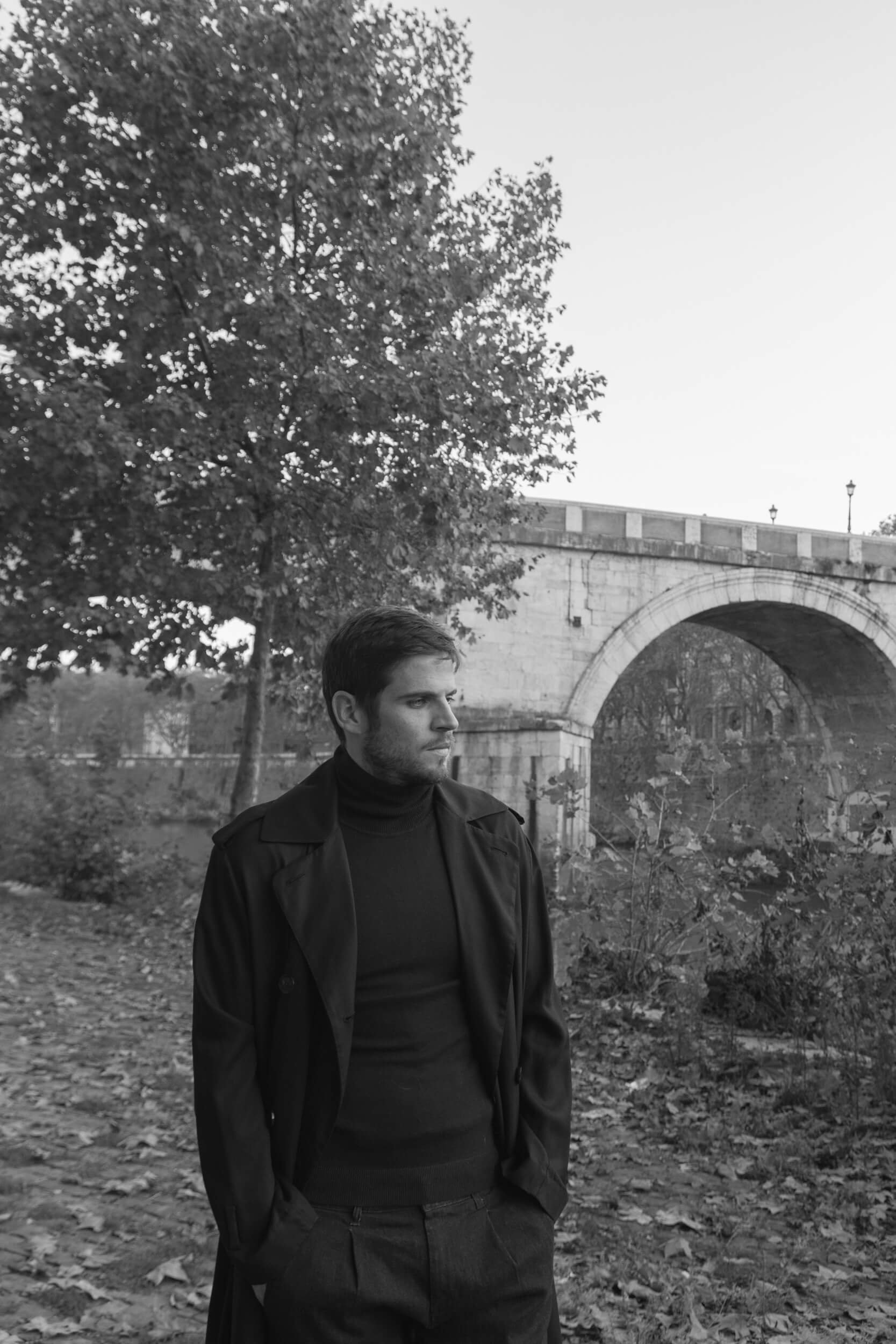
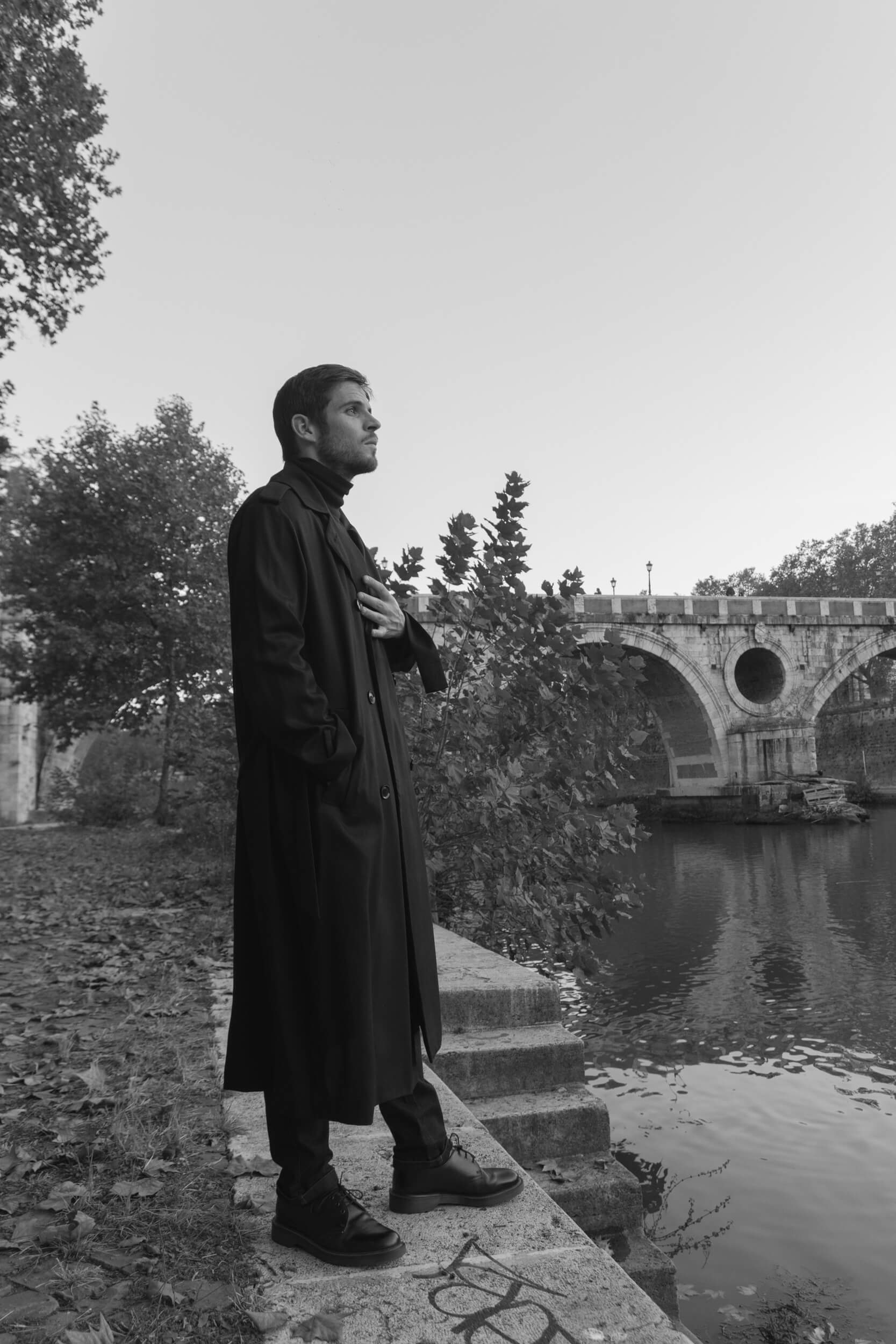
Cinema, television, and theater: to which one of these worlds do you feel like you belong the most, and under which kind of spotlight do you feel “more comfortable”?
To be honest, I’ve only worked in theater for academic purposes, back when I was studying. Once I was out of Centro Sperimentale di Cinematografia, I never really did theater, so that’s a world I’m acquainted with but never experienced professionally, also because it’s a whole other world, that I know less and would have a hard time joining. As for cinema and television, I think that what changes is the audience’s perception, besides the fact that there’s a unity in cinema that seriality doesn’t have; however, I don’t really see a huge difference between cinema and TV for what concerns my job, so I feel comfortable in both worlds, maybe something might change quality-wise depending on the product and the broadcaster, but I don’t really feel a huge difference. Maybe, what I feel is the difference between good and bad movies, good and bad shows.
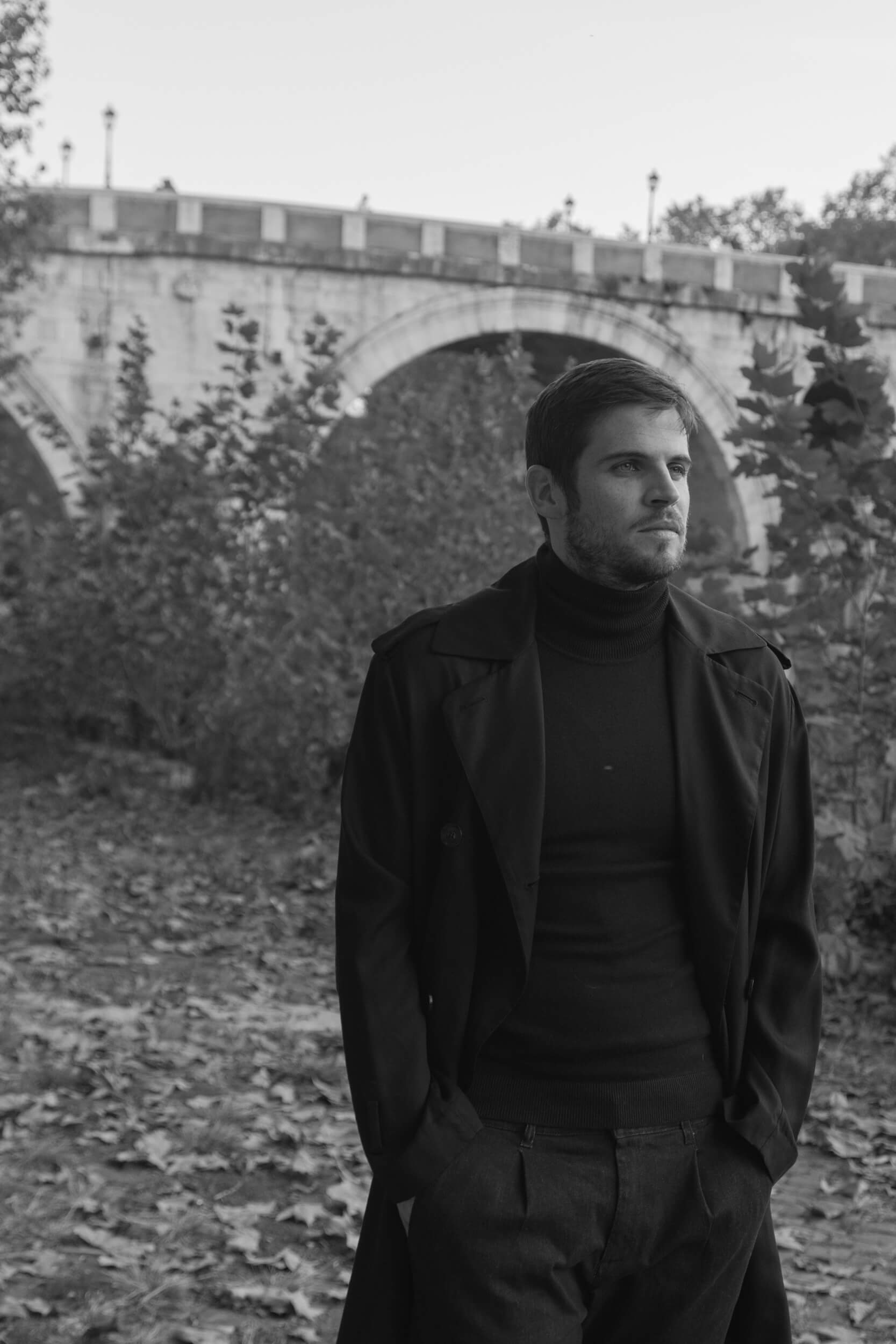
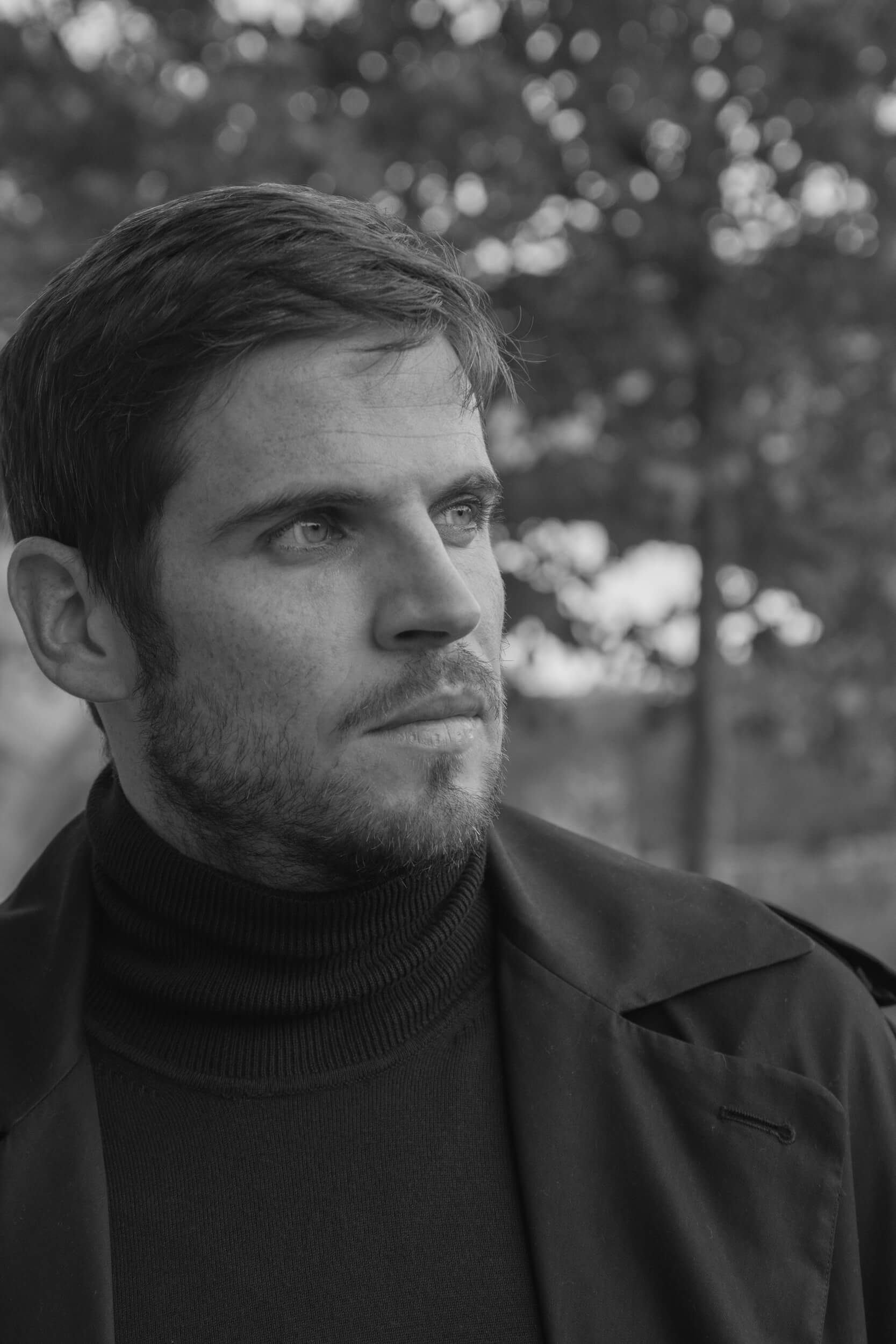
Where does your passion for acting come from? Have you always wanted to be an actor, or was there a specific event, person, day that made you realize that?
It’s wasn’t love at first sight.
I used to attend theater amateur laboratories in a somehow passive way because I was quite shy, so acting wouldn’t make me feel relaxed at all. Later on, little by little, after finding the right coach, I started looking at that world in a different way, and it was him who made me understand that it could have been a job perspective. So, when I was still underage, on his suggestion I found a talent agency in Room and started doing my first auditions. It was a slow process, nothing like many other colleagues of mine who have immediately had a vocation for acting.
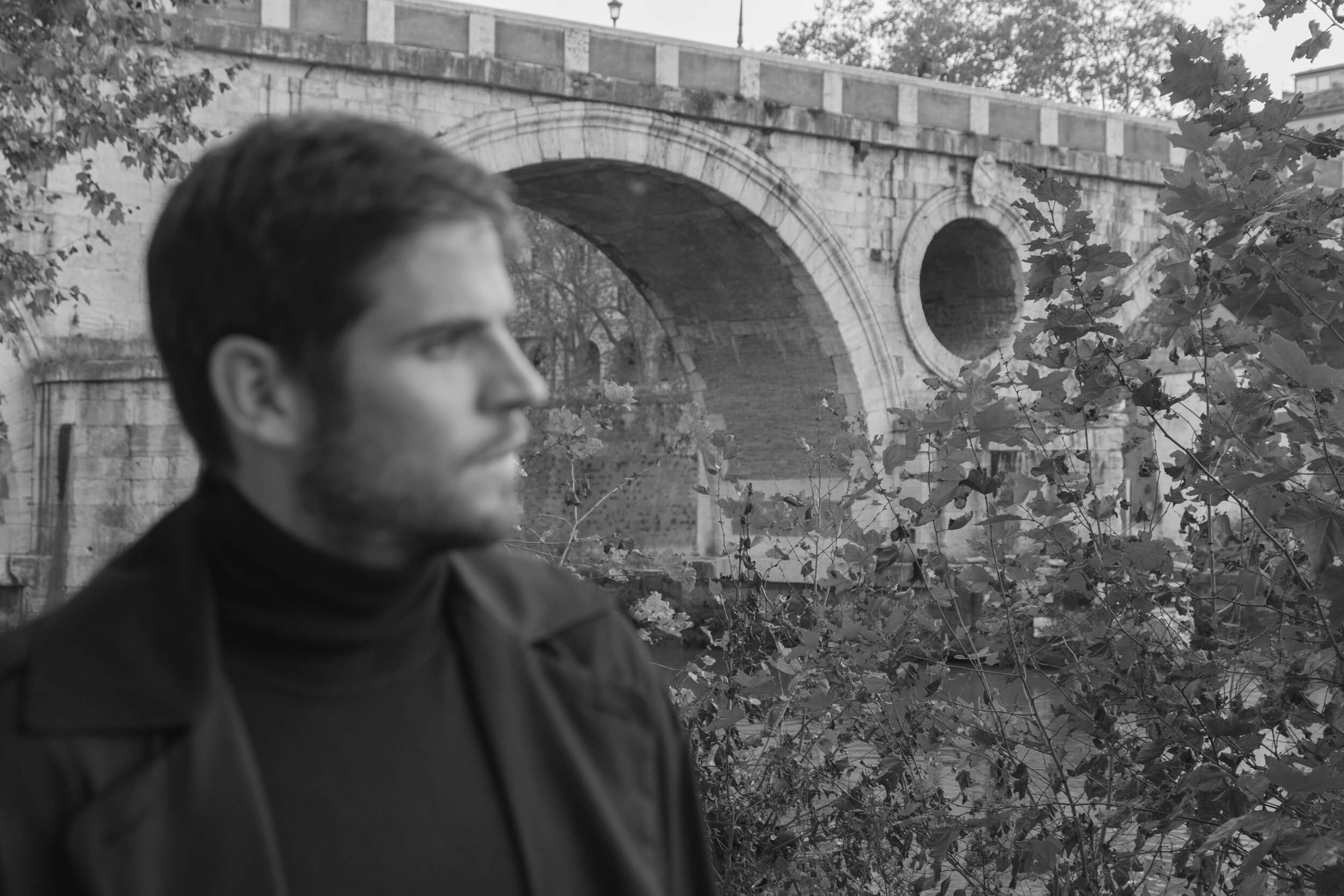
“…I was quite shy, so acting wouldn’t make me feel relaxed at all.”
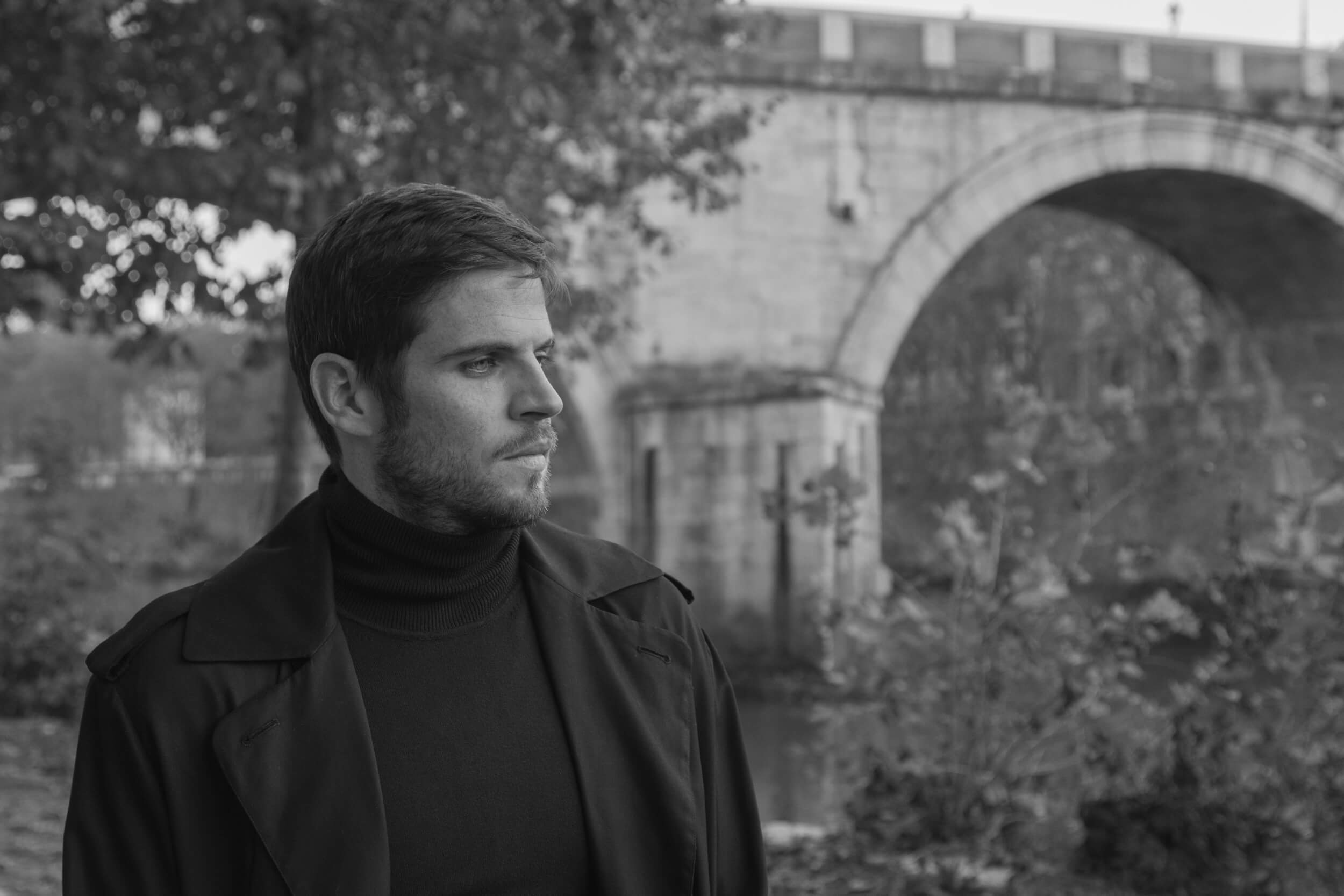
The latest film or TV series that you’ve watched and really enjoyed?
One of my favorite movies is “The Lives of Others,” or Ken Loach’s latest movies I’ve seen at the movie theater and really enjoyed, like “Sorry We Missed You,” that’s a great one. As far as TV series are concerned, I would never watch sitcoms in the past, but for a few years now I’ve become a huge fan of high-quality American sitcoms: I’ve loved “The Office,” which is a show that, if a couple of years ago I spoke with my friends and colleagues, only very few of us would have known, so it’s maybe come about here over time, by word of mouth, and it’s obviously become popular thanks to the streaming platforms.
On the other hand, speaking of TV series per se, in this period I’ve been watching only a few shows, I’ve been watching little TV in general, I’d rather spend my time reading. I don’t know why, I usually go through phases and as of now I haven’t been enjoying sitting on my couch and deciding, “Tonight I’m watching a movie” or “Tonight I’m watching a show;” I feel like I’m not bringing justice to what I’m watching, and I feel like it doesn’t enrich me in any way.
If there’s something I want to watch, I’d know it starting from the afternoon, and if there’s nothing, I keep reading my novels and be happy like that.
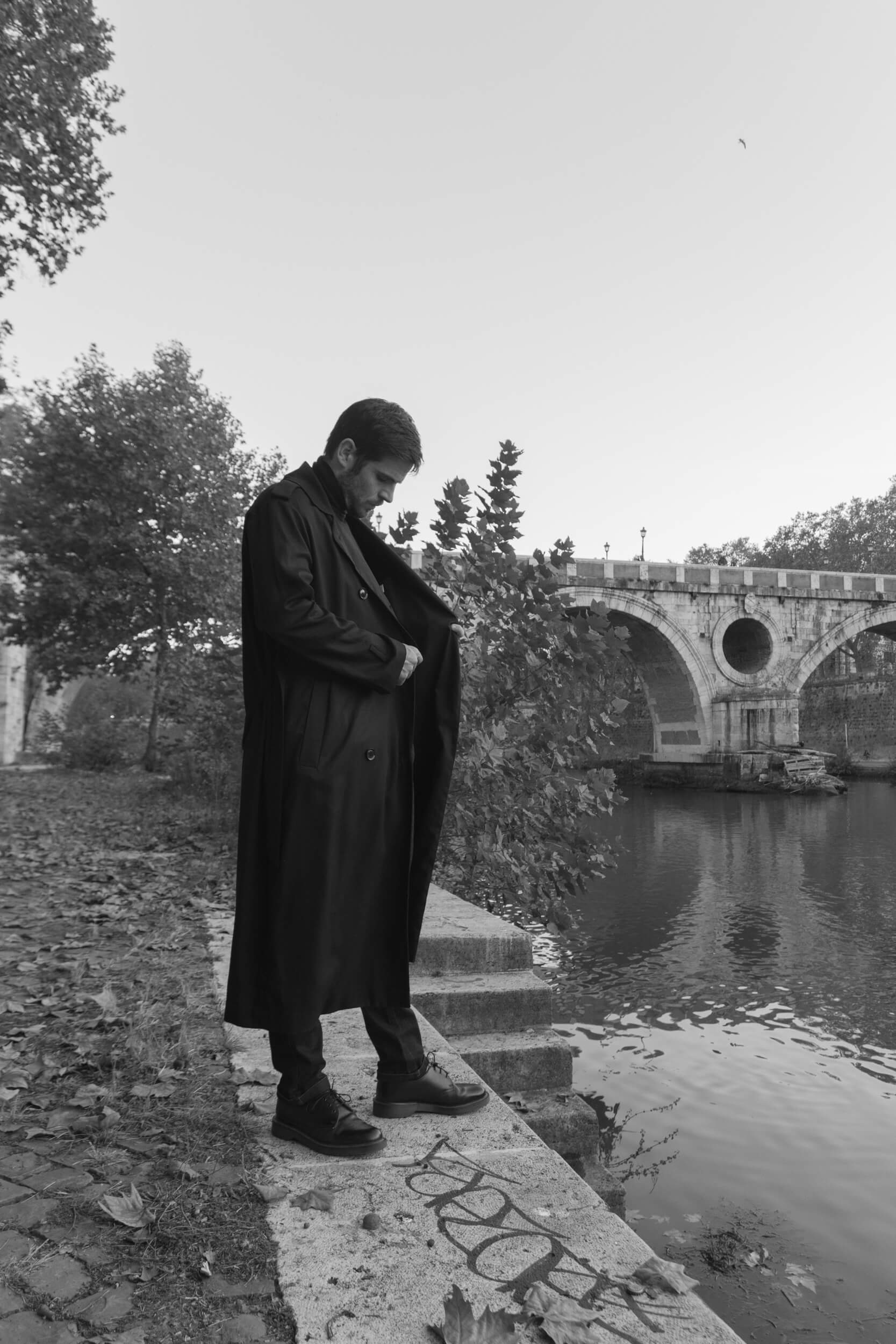
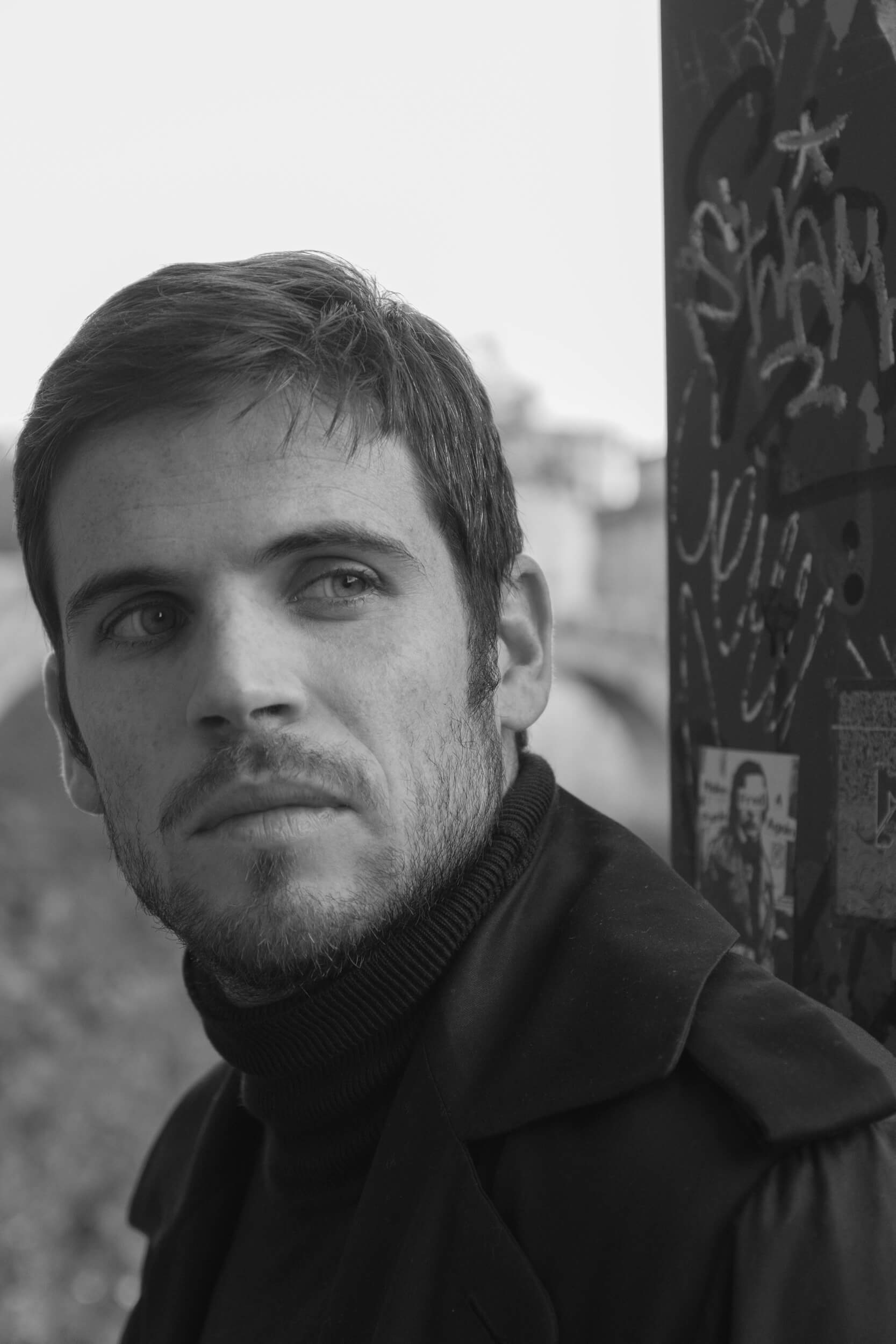
What’s the first DVD you bought?
I’ve never been a big DVD purchaser; I’ve always been given them as a gift. Maybe, the first one was “Scary Movie 3,” when I was in middle school.
A character from a movie or TV series you would want to be friends with?
Phil Dunphy from “Modern Family,” I love him.
Your dream collab?
Huge question. They’re so many, I actually can’t narrow it down to just one person! [laughs]
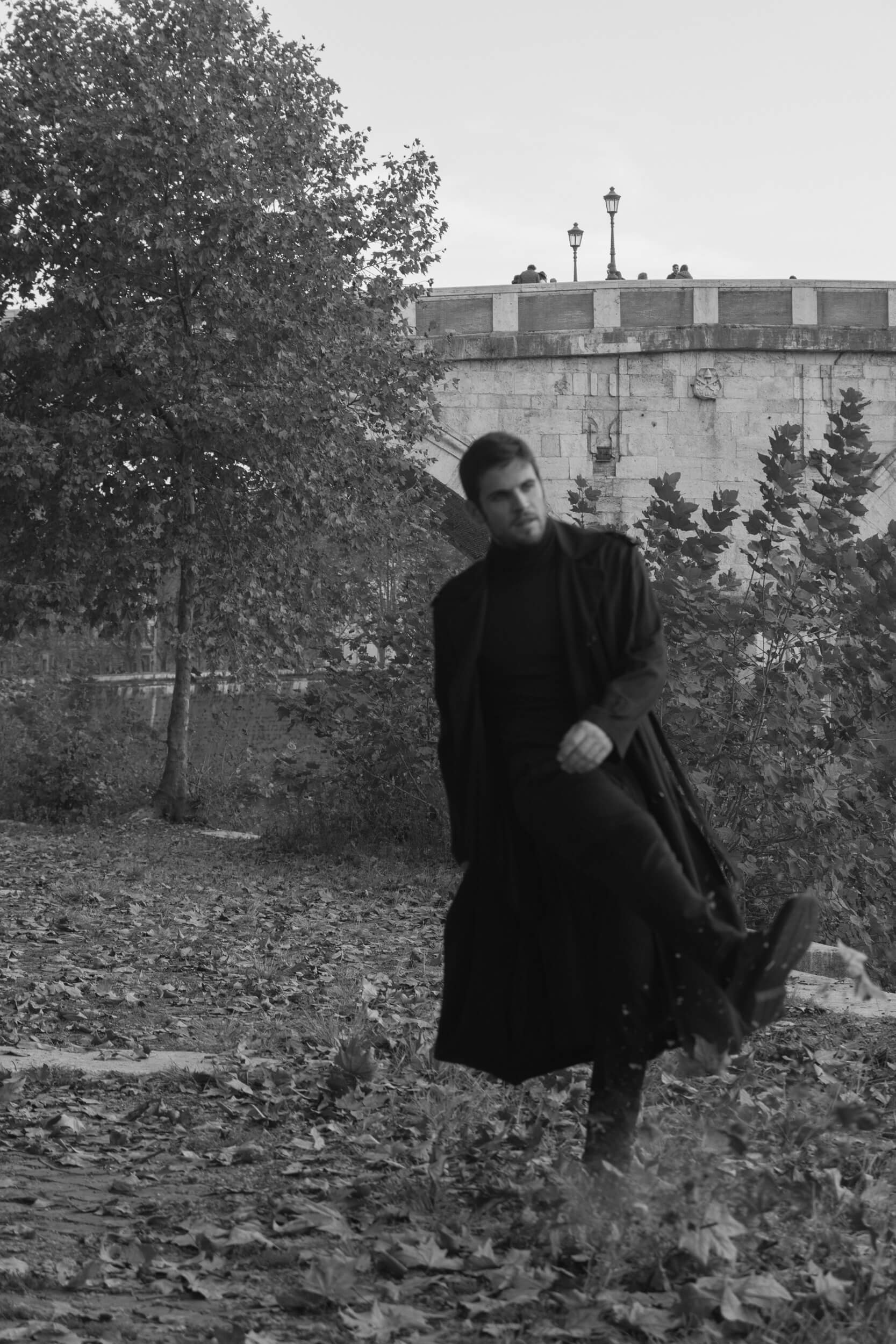
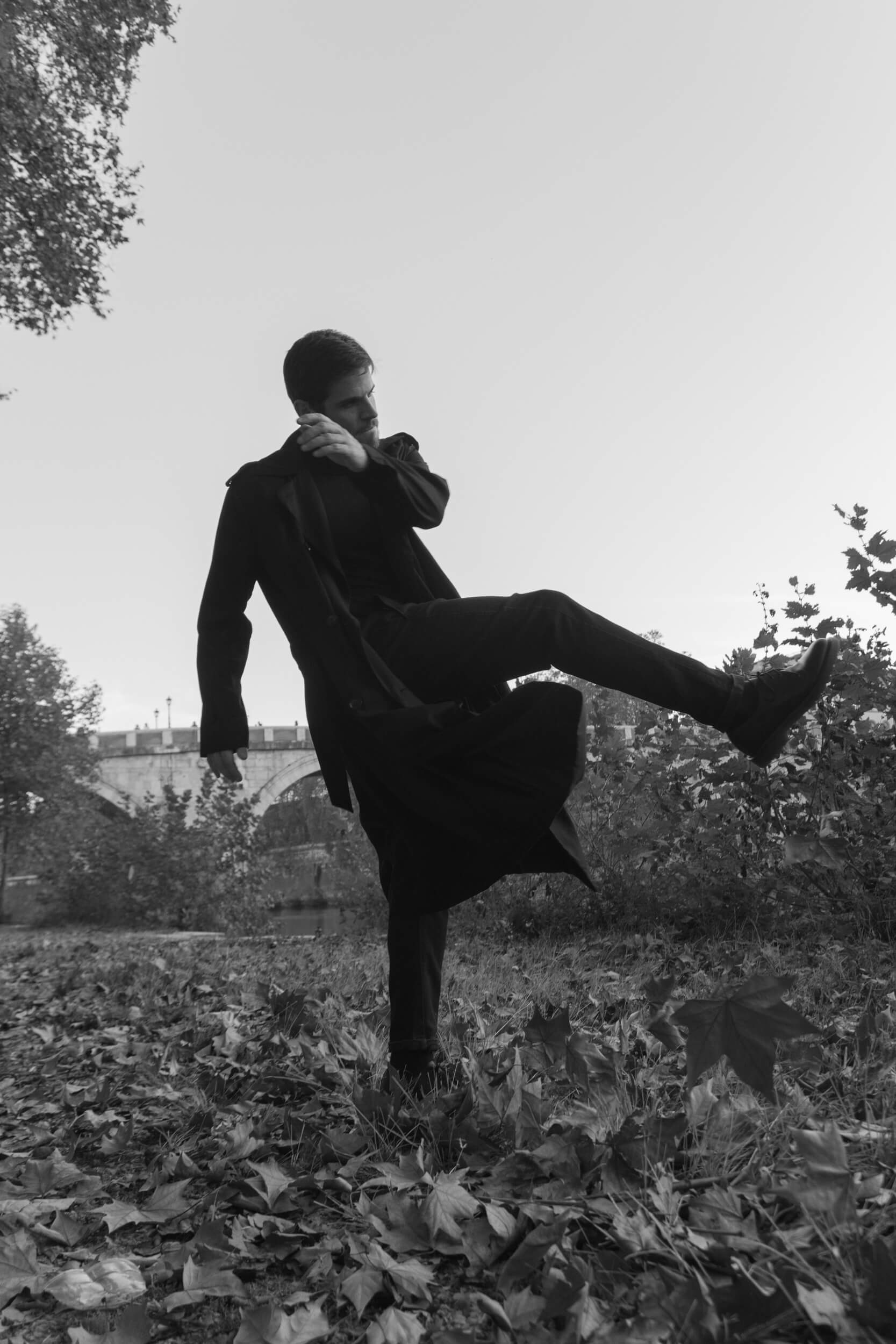
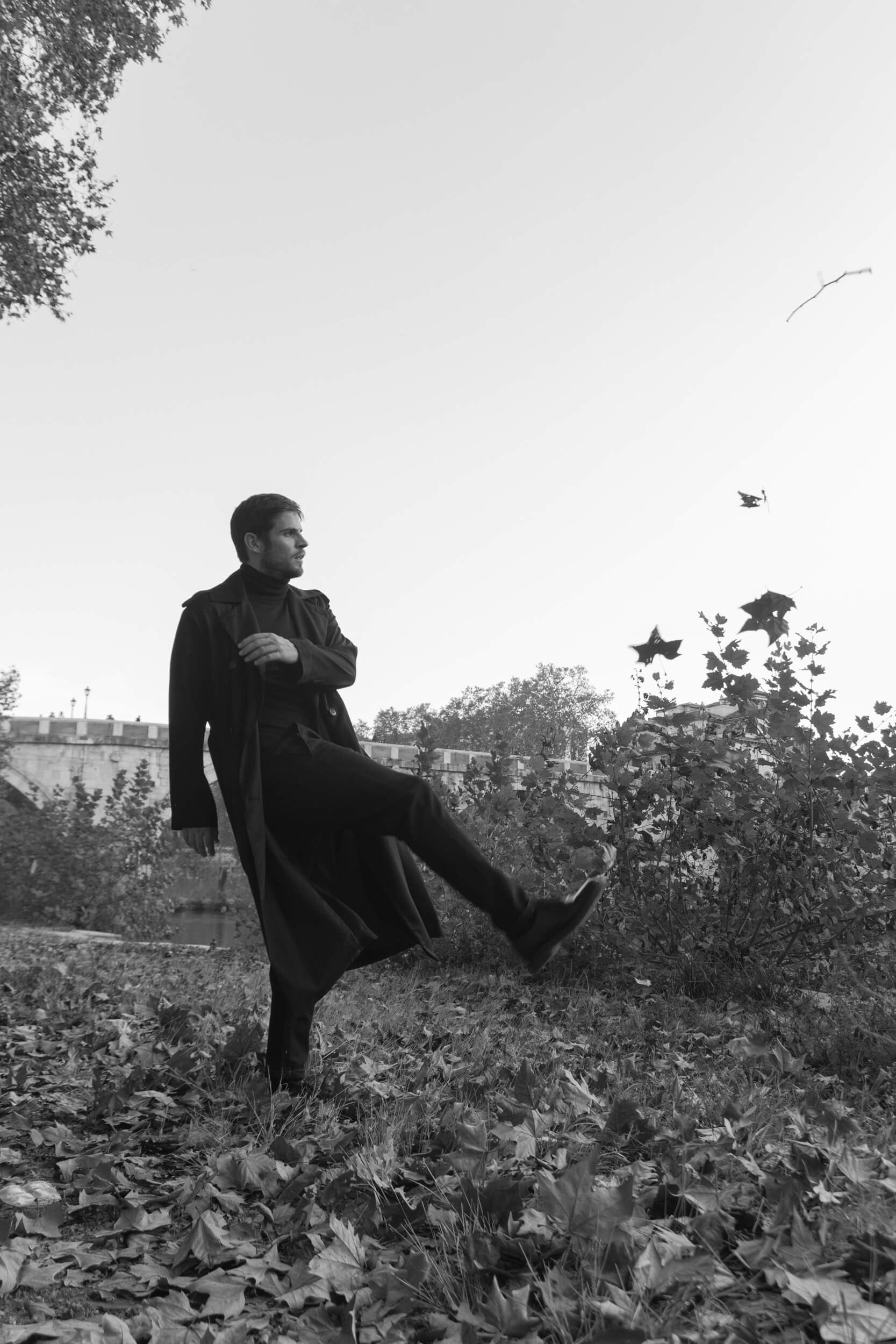
If you could spend a night out with a character (a fictional or real-life one) from the past, present, and future, who would you choose and why?
Well, what an interesting but difficult question! I have a huge passion for history, I have a Master’s Degree in History, so one character from the past would certainly be a historical figure… Or one of my two granddads I never got to meet! So, ultimately, my answer is: from the past, the granddad I’ve never met, from the present, Art Keller from the trilogy “The Power of the Dog” by Don Winslow, and from the future, the grandchildren I’ll have.
“One lie leads to another” is another big theme “Devotion” deals with. What’s a lie you’ve recently told?
It depends, shall we consider omissions as white lies or not?
I think we should…
Okay, on a par with lies… Well, the omission of a problem because I didn’t want my loved ones to worry. I think there can be a lot of good lies. For too long I’ve been so extremely honest, but, and maybe also thanks to “Devotion,” I now believe that lots of white lies are meant to prevent loved ones from worrying when they don’t have any solution, and I can’t get any support from them.
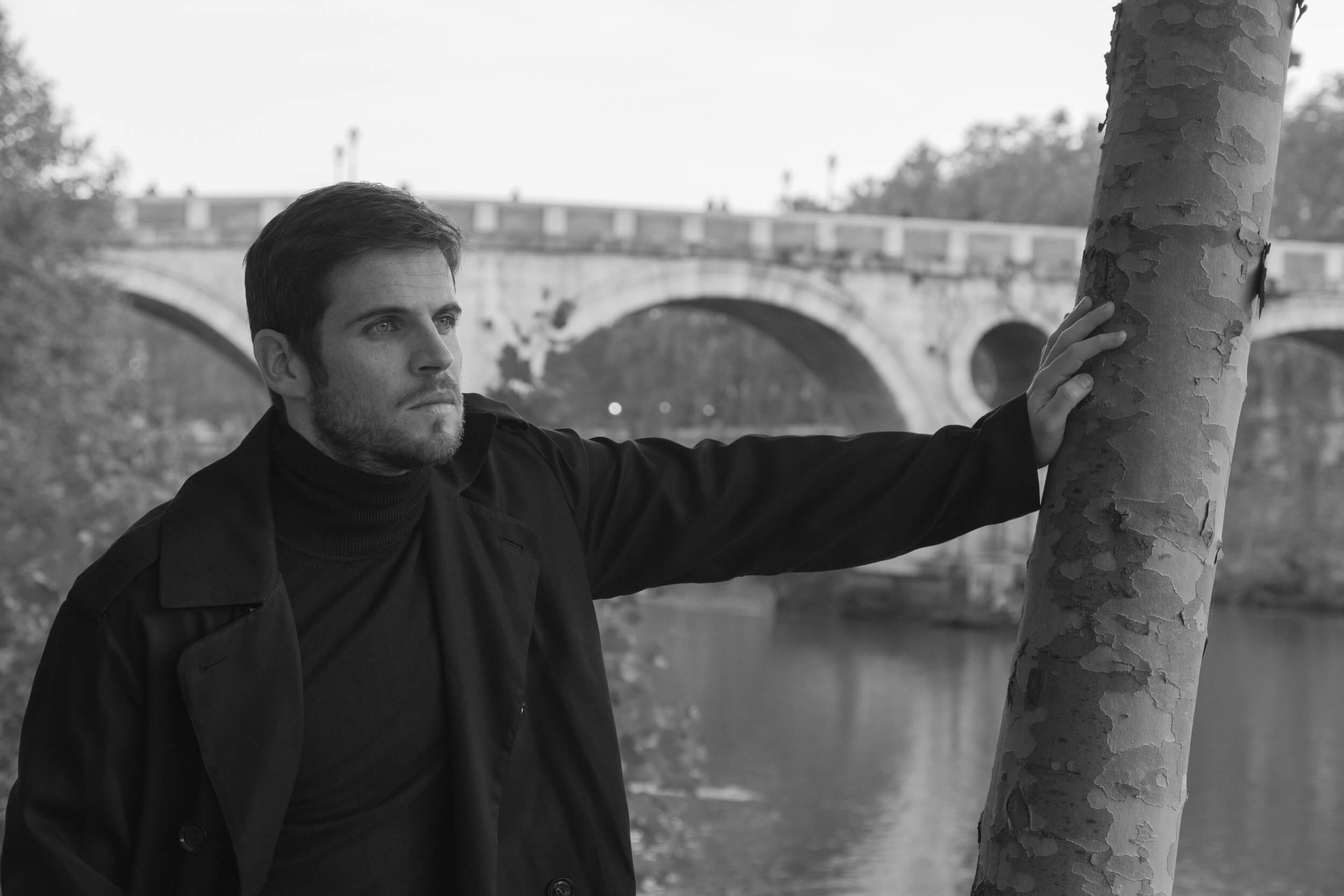
“I think there can be a lot of good lies…”
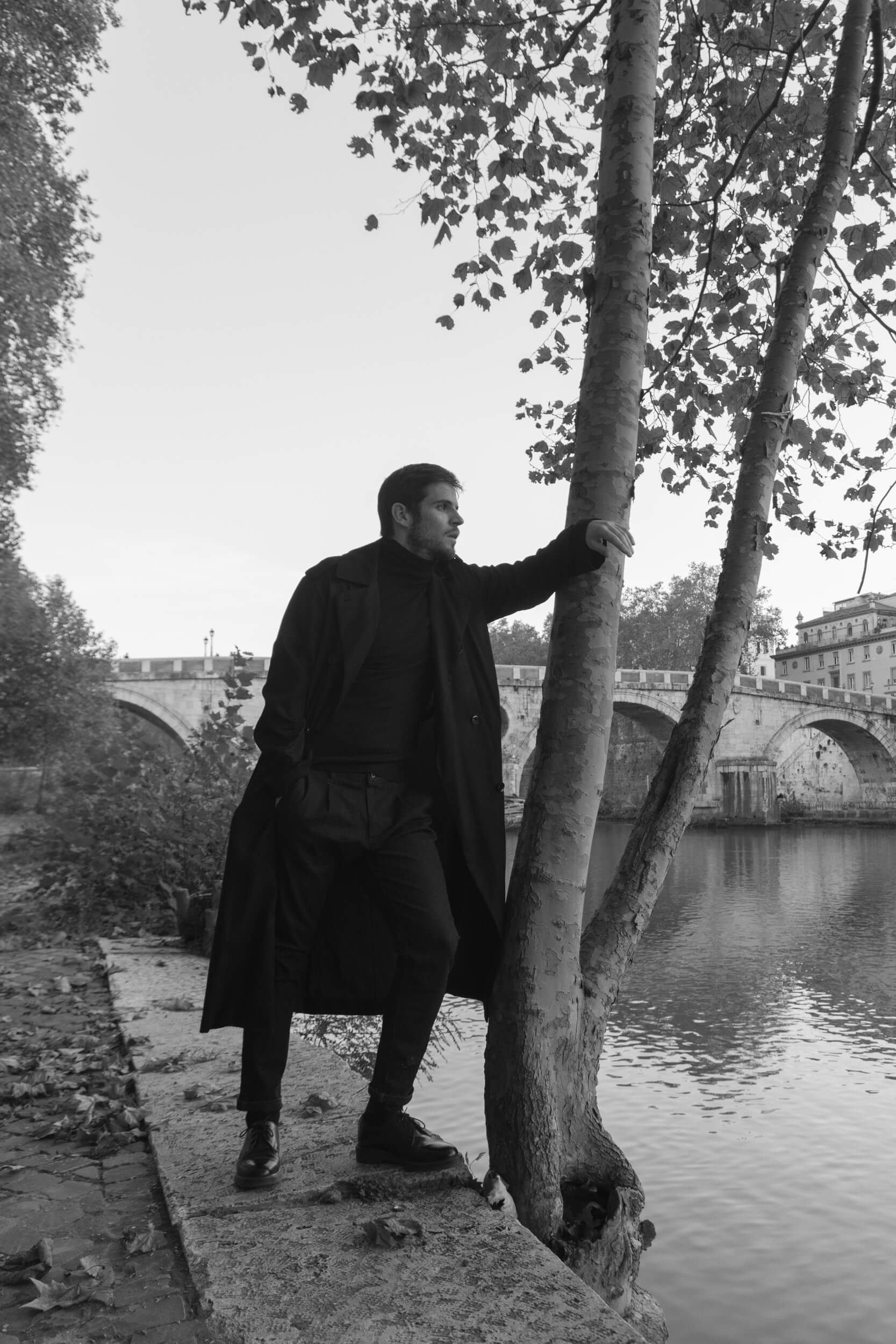
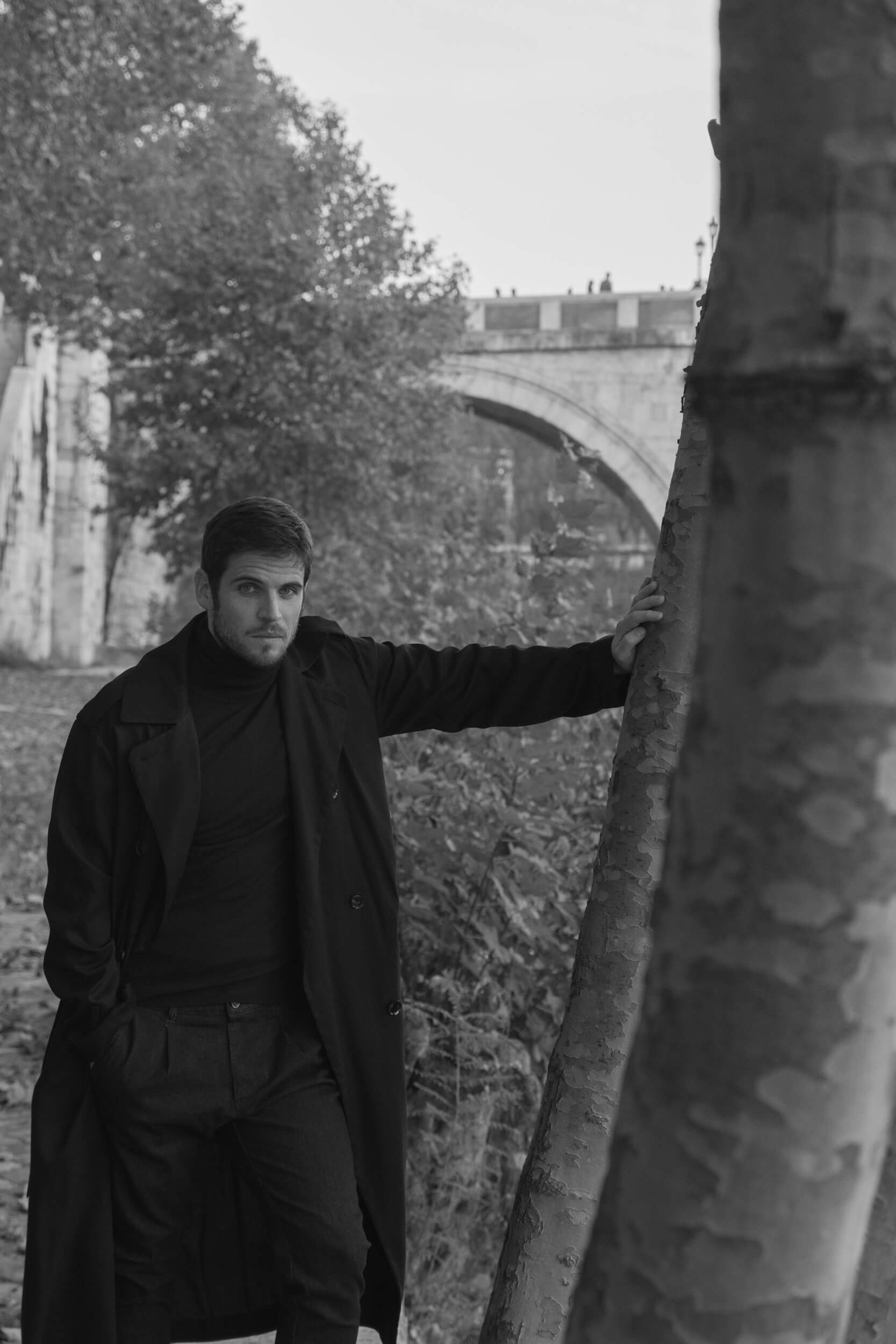
What stories do you dream to tell?
I’m very passionate about the great totalitarian movements of the Twentieth century, so I’d love to tell a story about that time in history.
Your must-have on set?
My earphones, they allow me to isolate and gain that private space I need.
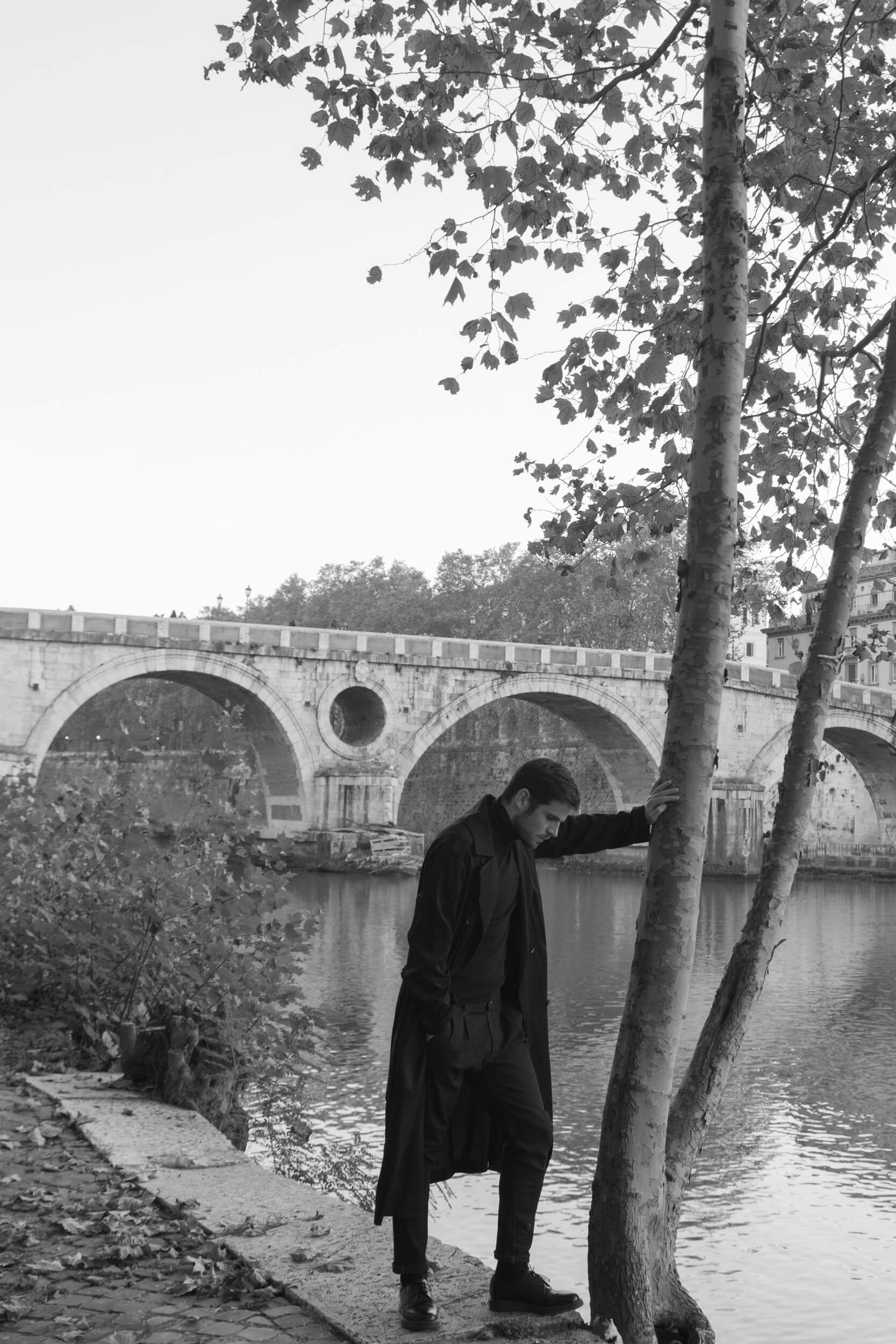
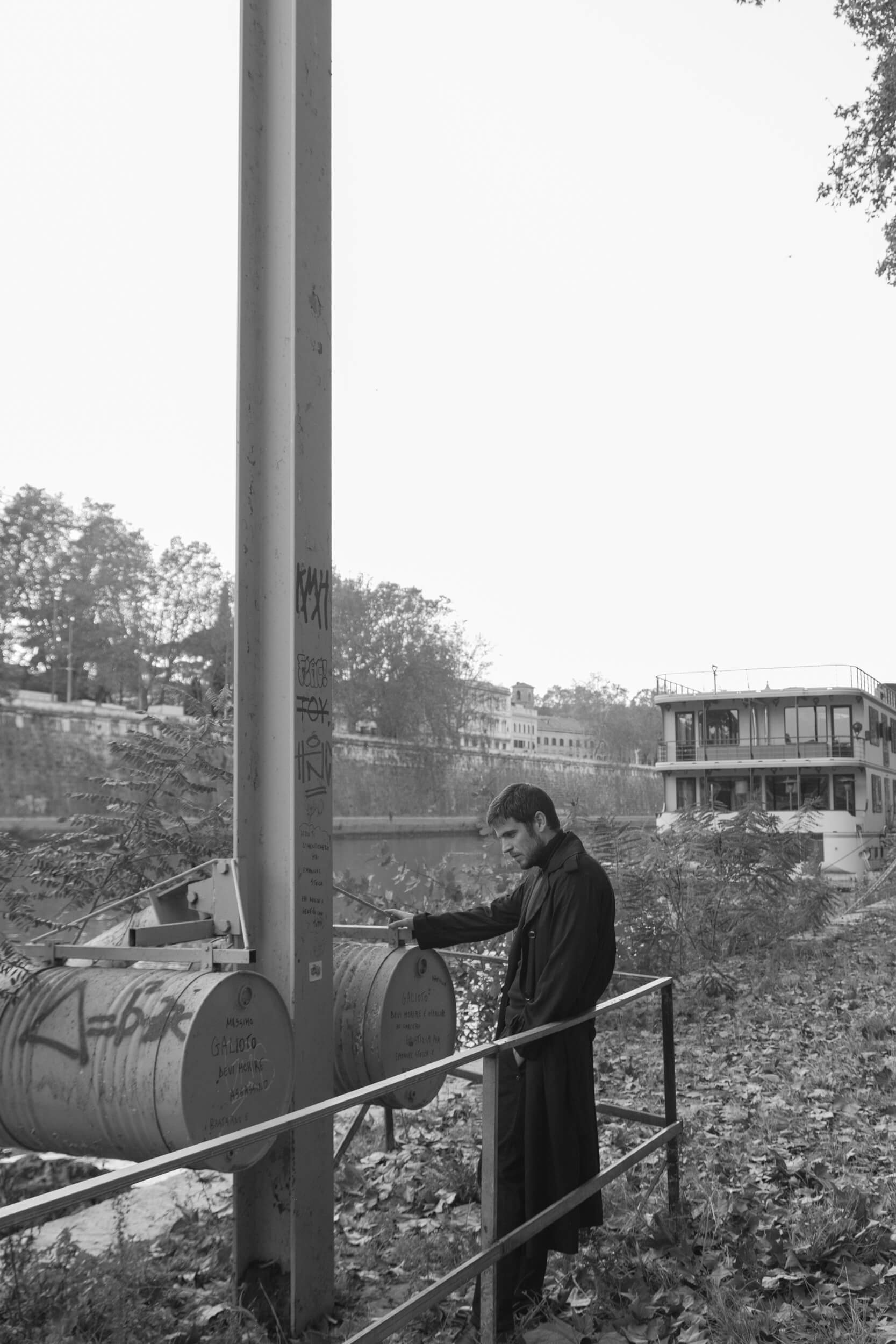
An epic fail on set?
Wow, our conversation could go on forever… [laughs]. Thank God, the lucky thing about making movies and TV series is that epic fails, unless your editor is the Devil in person, are cut from the final product, so you don’t get to see them. However, I remember this show we were filming in full summer, but we had to wear winter costumes, and I only had a few lines, but felt like I was an old man with a heatstroke: every time I would stop after three words to ask what my line was because I couldn’t remember it, we did something like ten takes. I remember it as a feeling of powerlessness, I kept thinking, “I don’t know what’s happening to me, I don’t remember my lines, I only want to pass out in a bed.”
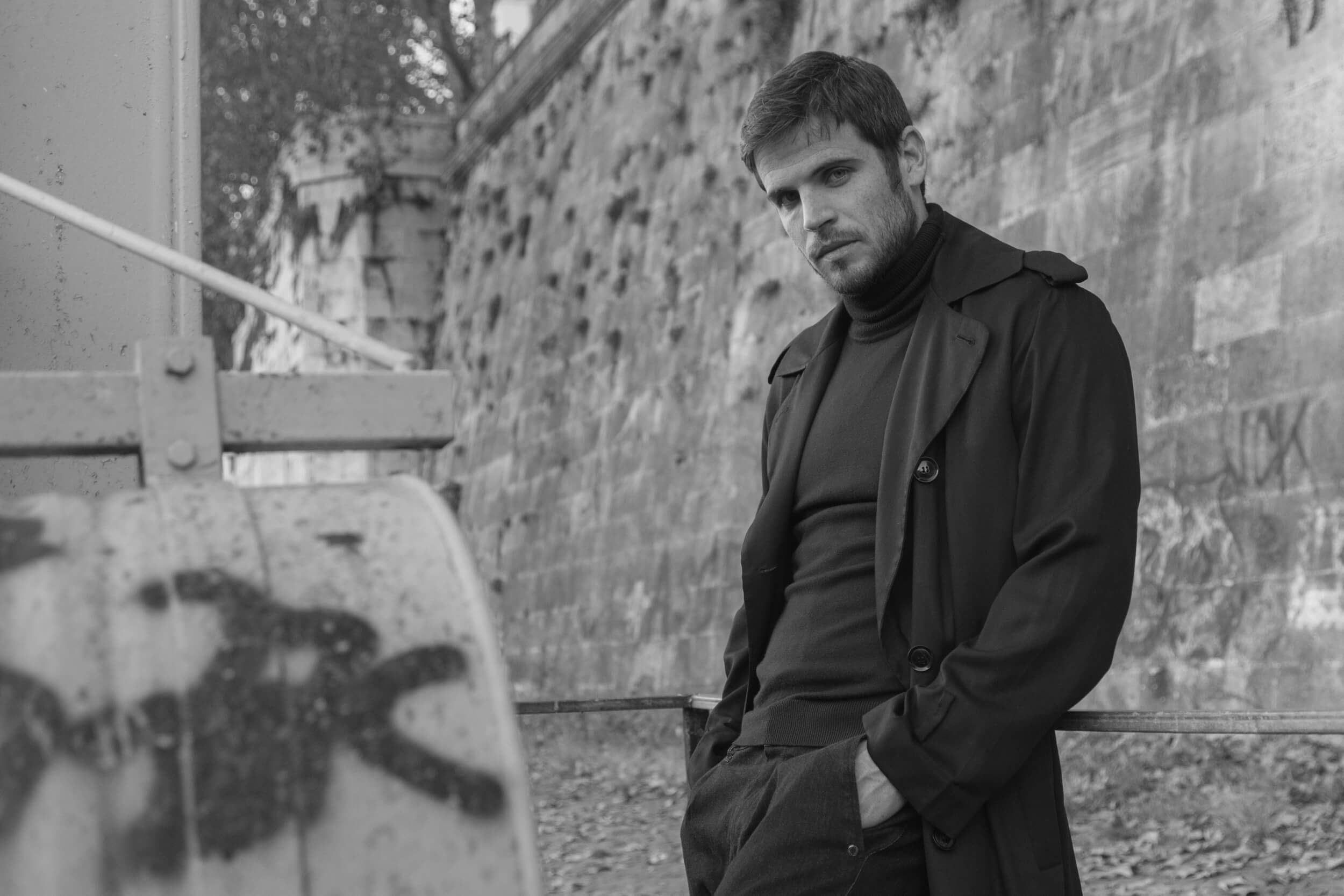
What are you afraid of?
The unknown. But I’m also attracted to it. I think that behind fears, desires are always hidden. So, it’s the unknown that scares and attracts me.
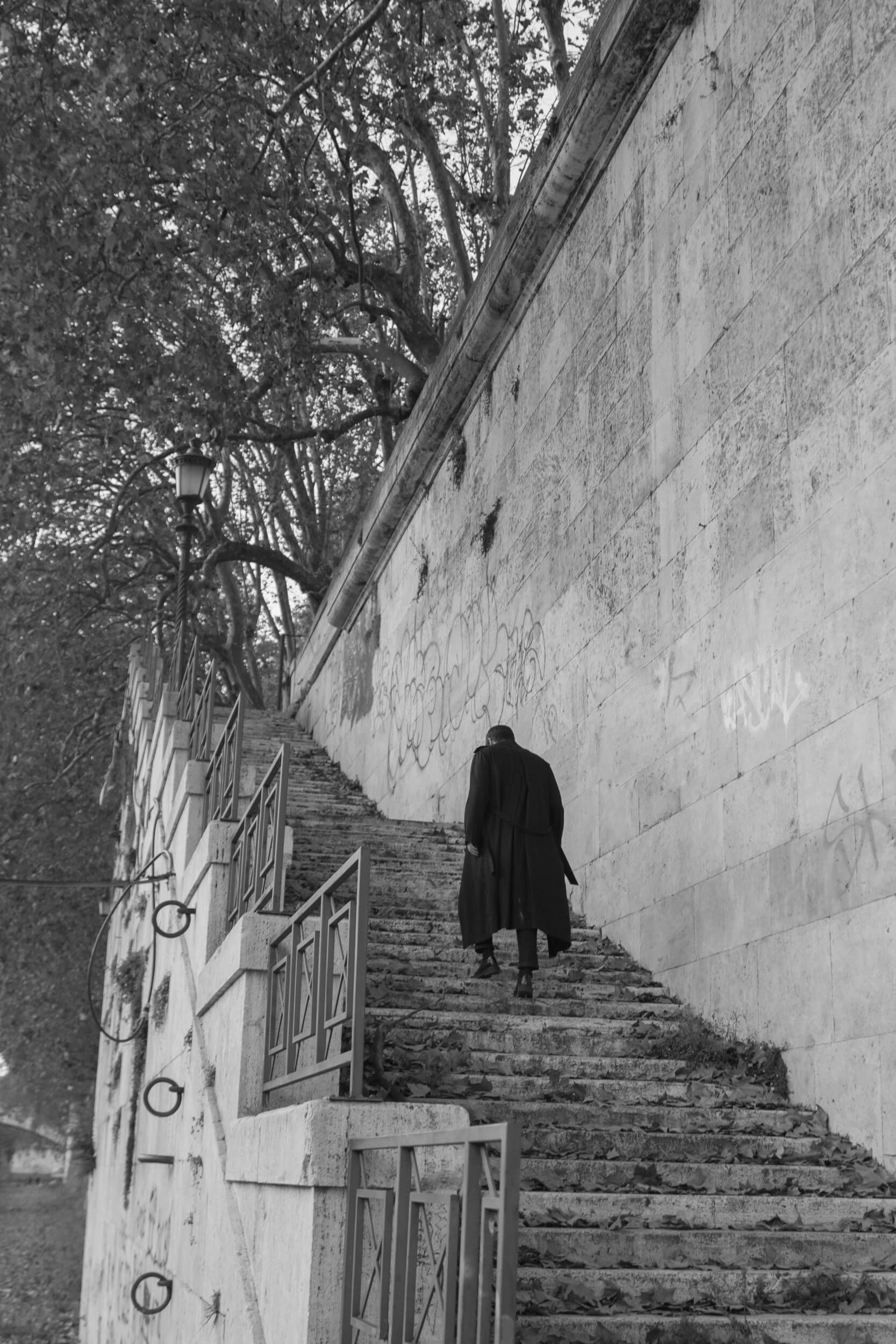
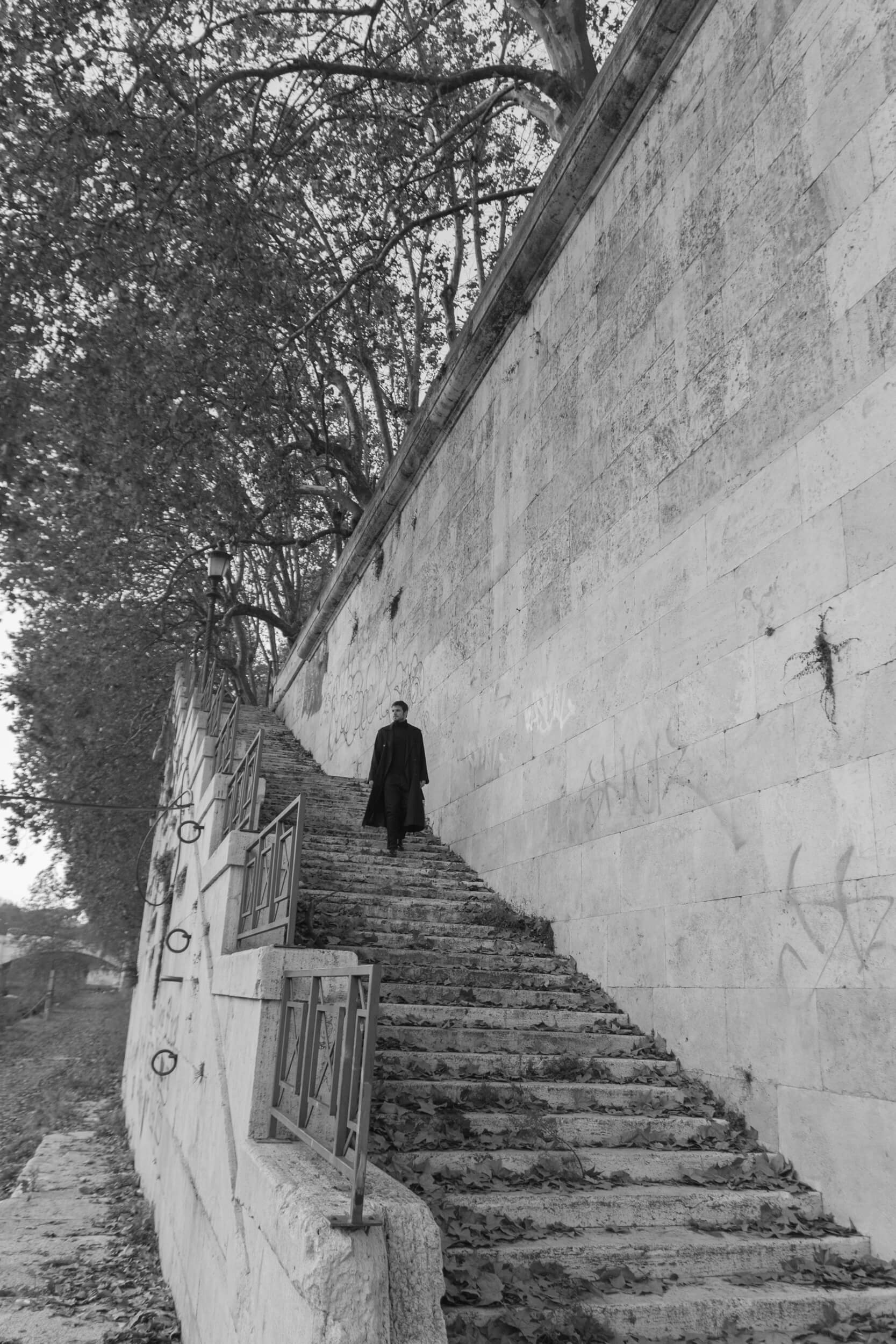
What’s the bravest thing you’ve ever done?
Sneaking in a very beautiful place when I wasn’t allowed to [laughs].
What’s the latest thing you’ve discovered about yourself?
That I like freedom.
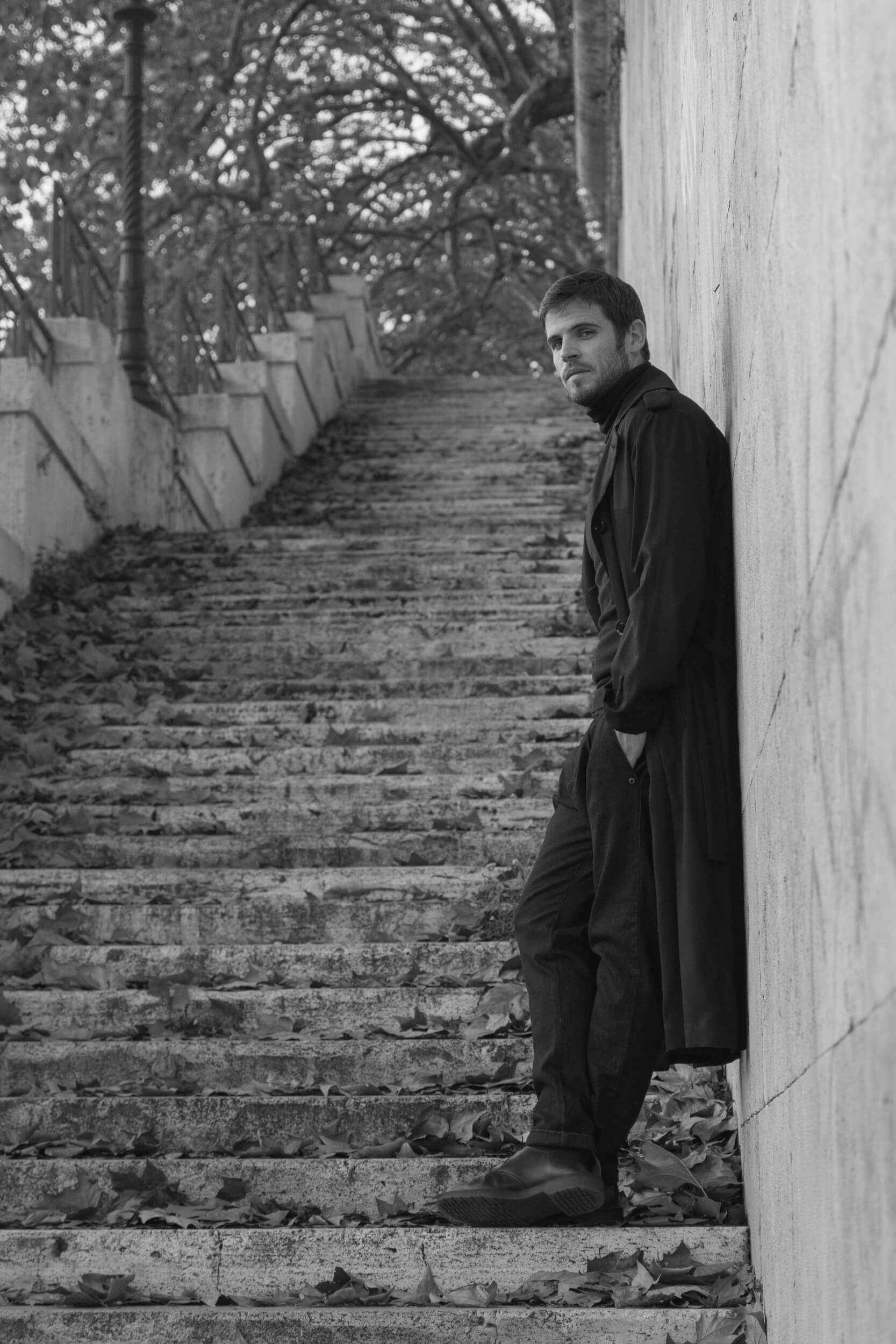
What does it mean to you to feel comfortable in your own skin?
It means being in touch with what I feel. It’s the basis of everything for me, no matter what I’m feeling, I try and accommodate all my feelings. So, feeling comfortable in my skin means coping with my emotions and never hiding anything from myself, being honest with myself.
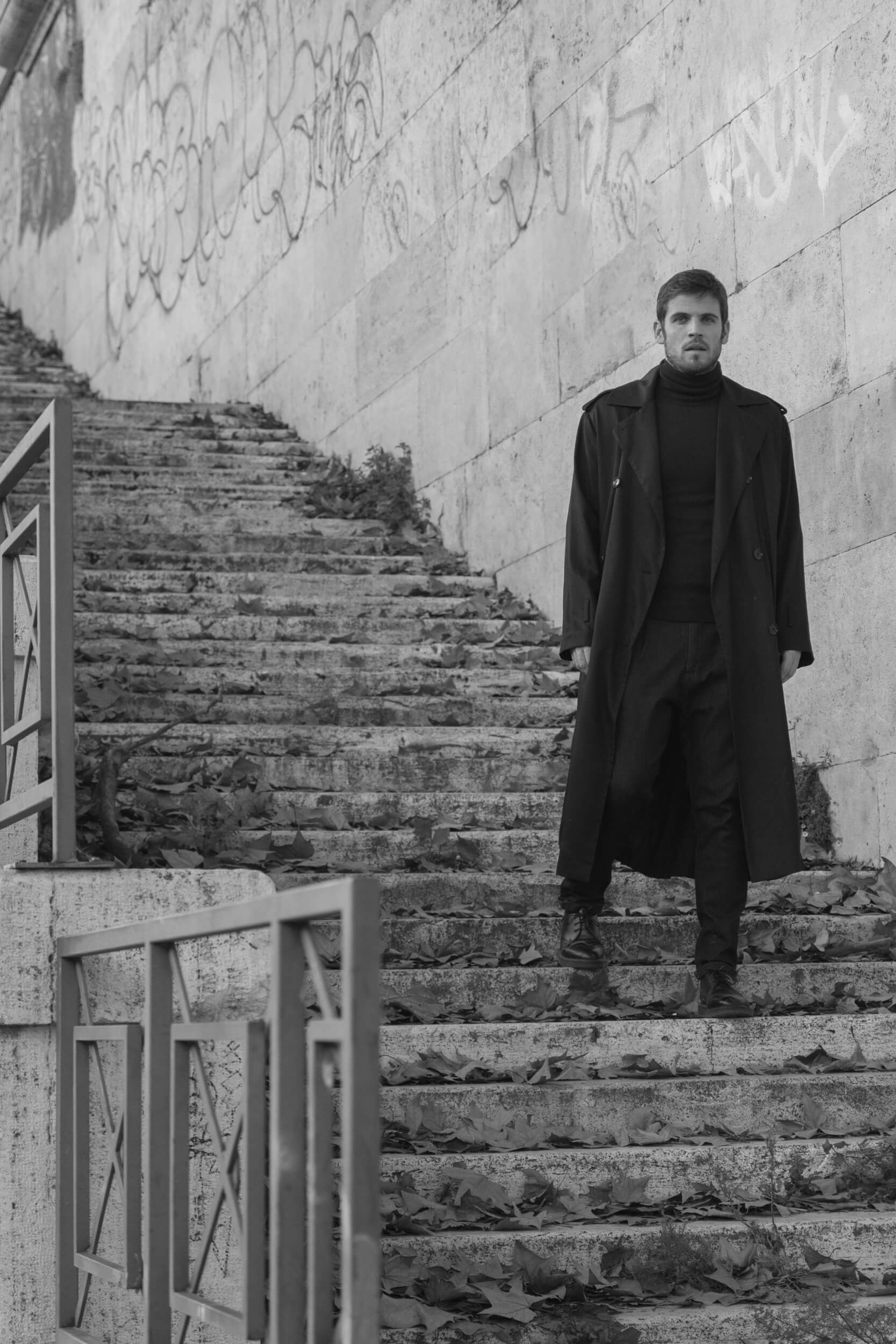
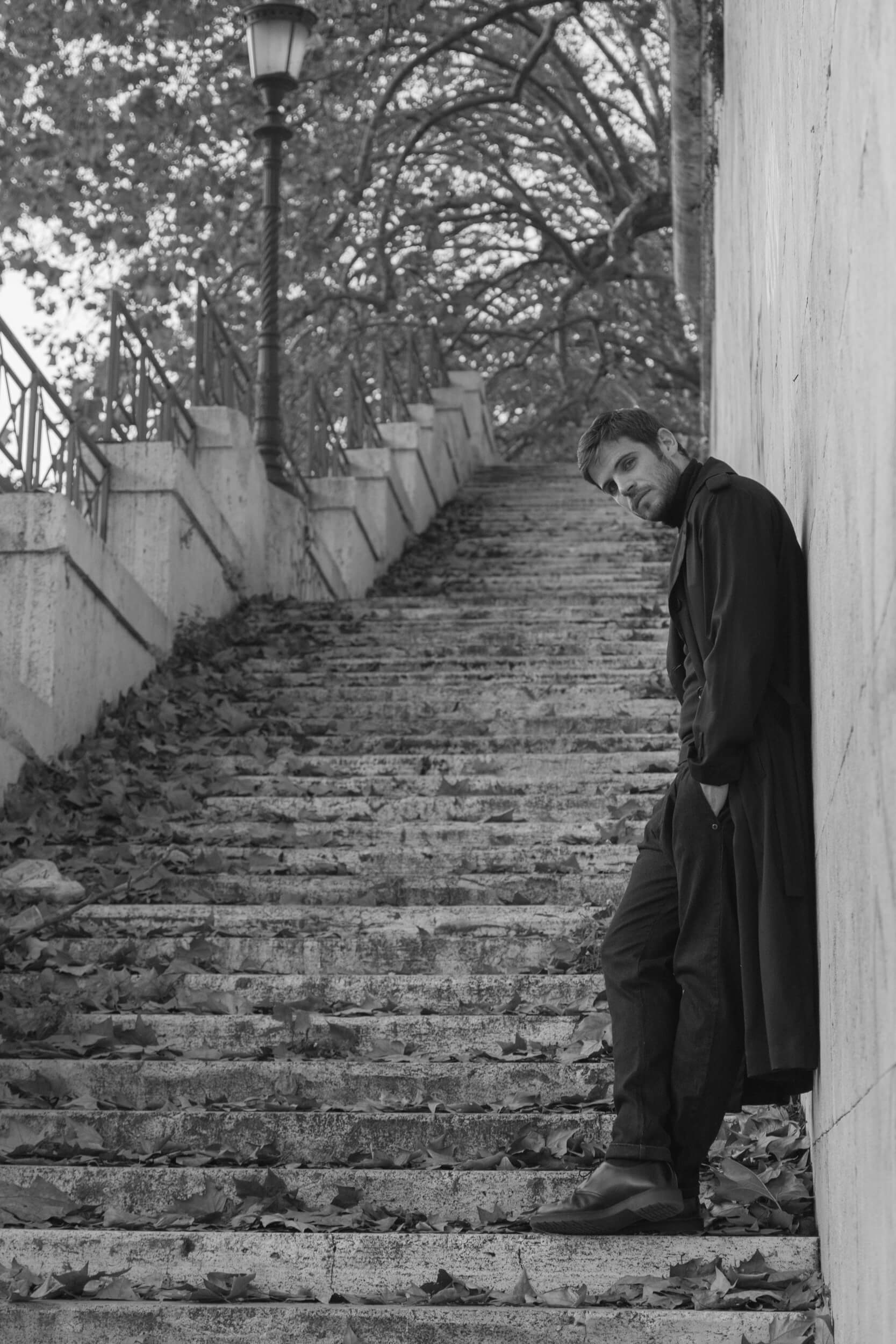
What’s your happy place?
A fireplace and a novel.
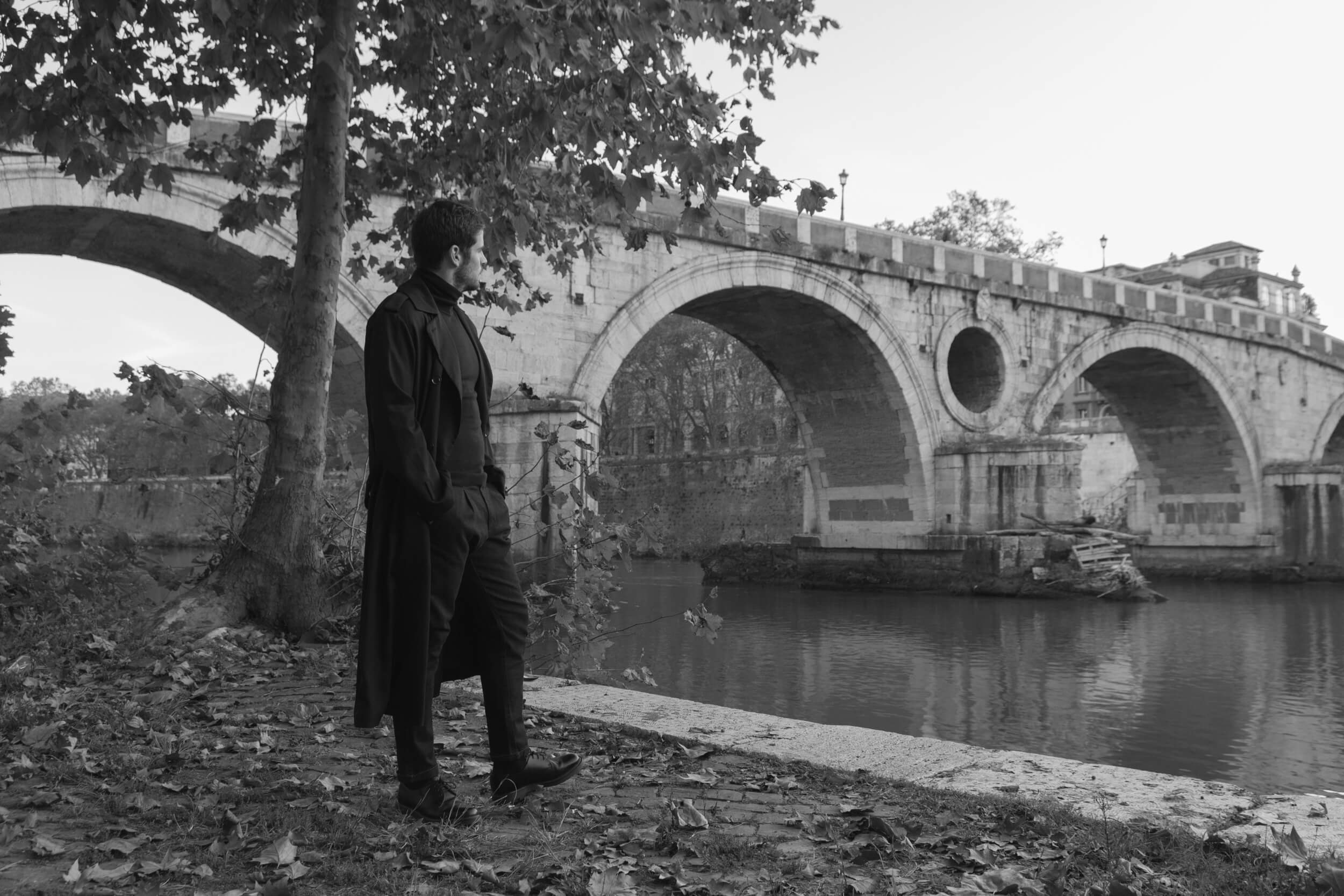
Photos by Johnny Carrano.
Grooming by Francesca Naldini.
Styling by Sara Castelli Gattinara.
Thanks to Others srl.
LOOK 1
Total Look: Impure
Trench coat: Dépêche-toi
Shoes: Dr. Martens
LOOK 2
Total Look: Impure
Trench coat: COS
Shoes: Dr. Martens

